
This collection of photographs shows some of the world’s oldest and oddest vending machines. Nowadays almost anything imaginable can now be purchased from the vending machines, however, the trend for automated purchases is nothing new, as these vintage photographs prove.
Vending machines are defined as self-contained automatic machines that dispense goods (such as candy or soft drink) or provide services (such as a weighing scale) when coins are inserted.
The earliest known reference to a vending machine is in the work of Hero of Alexandria, an engineer and mathematician in first-century Roman Egypt. His machine accepted a coin and then dispensed holy water.
When the coin was deposited, it fell upon a pan attached to a lever. The lever opened a valve which let some water flow out. The pan continued to tilt with the weight of the coin until it fell off, at which point a counterweight snapped the lever up and turned off the valve.
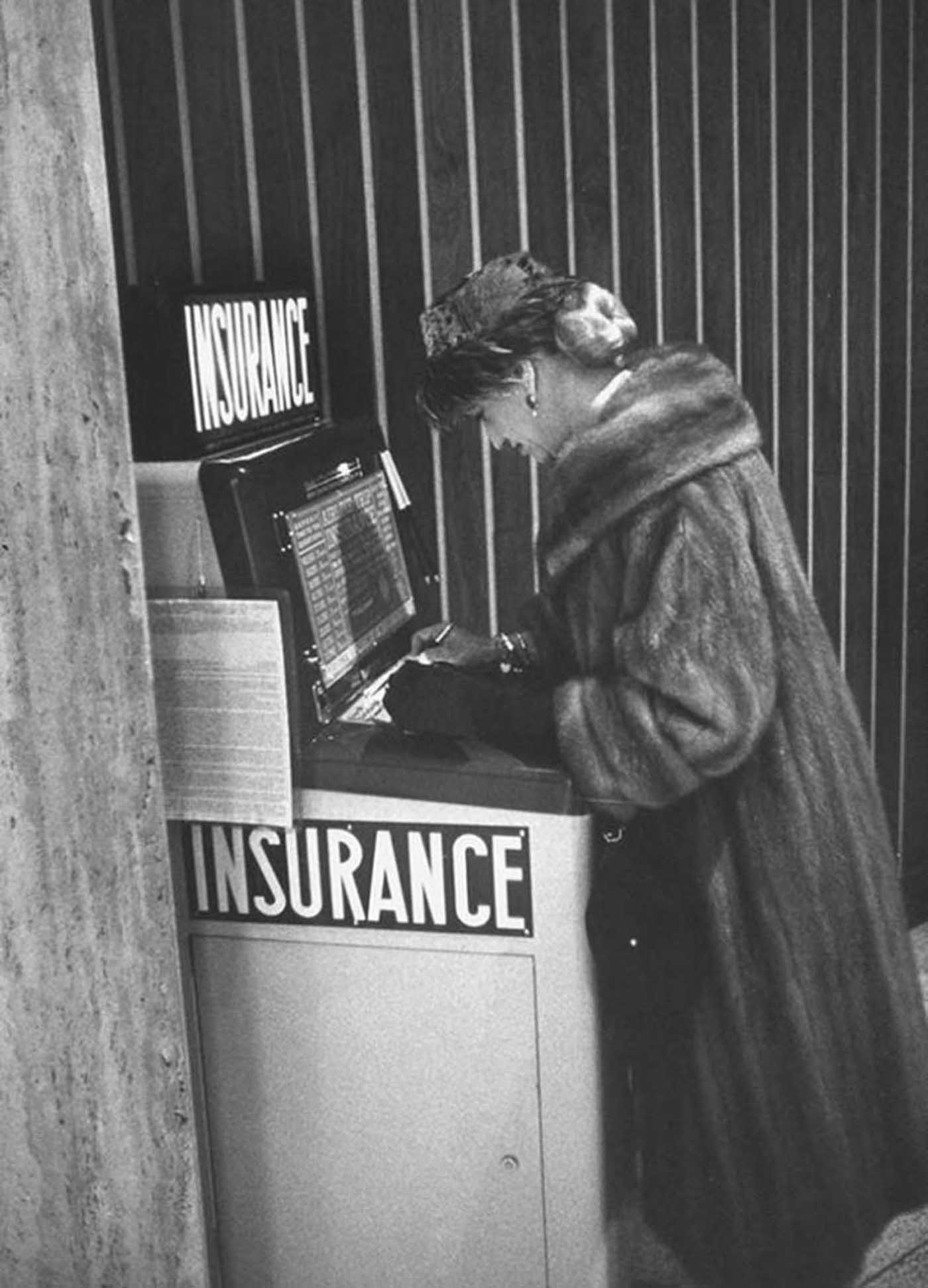
A machine selling air insurance at Newark Airport.
Coin-operated machines that dispensed tobacco were being operated as early as 1615 in the taverns of England. The machines were portable and made of brass.
An English bookseller, Richard Carlile, devised a newspaper dispensing machine for the dissemination of banned works in 1822. Simon Denham was awarded British Patent no. 706 for his stamp dispensing machine in 1867, the first fully automatic vending machine.
The first modern coin-operated vending machines were introduced in London, England in the early 1880s, dispensing postcards. The machine was invented by Percival Everitt in 1883 and soon became a widespread feature at railway stations and post offices, dispensing envelopes, postcards, and notepaper.
The Sweetmeat Automatic Delivery Company was founded in 1887 in England as the first company to deal primarily with the installation and maintenance of vending machines.
In 1893, Stollwerck, a German chocolate manufacturer, was selling its chocolate in 15,000 vending machines. It set up separate companies in various territories to manufacture vending machines to sell not just chocolate, but cigarettes, matches, chewing gum and soap products.
The first vending machine in the U.S. was built in 1888 by the Thomas Adams Gum Company, selling gum on New York City train platforms.
The idea of adding games to these machines as a further incentive to buy came in 1897 when the Pulver Manufacturing Company added small figures, which would move around whenever somebody bought some gum from their machines. This idea spawned a whole new type of mechanical device known as the “trade stimulators”.
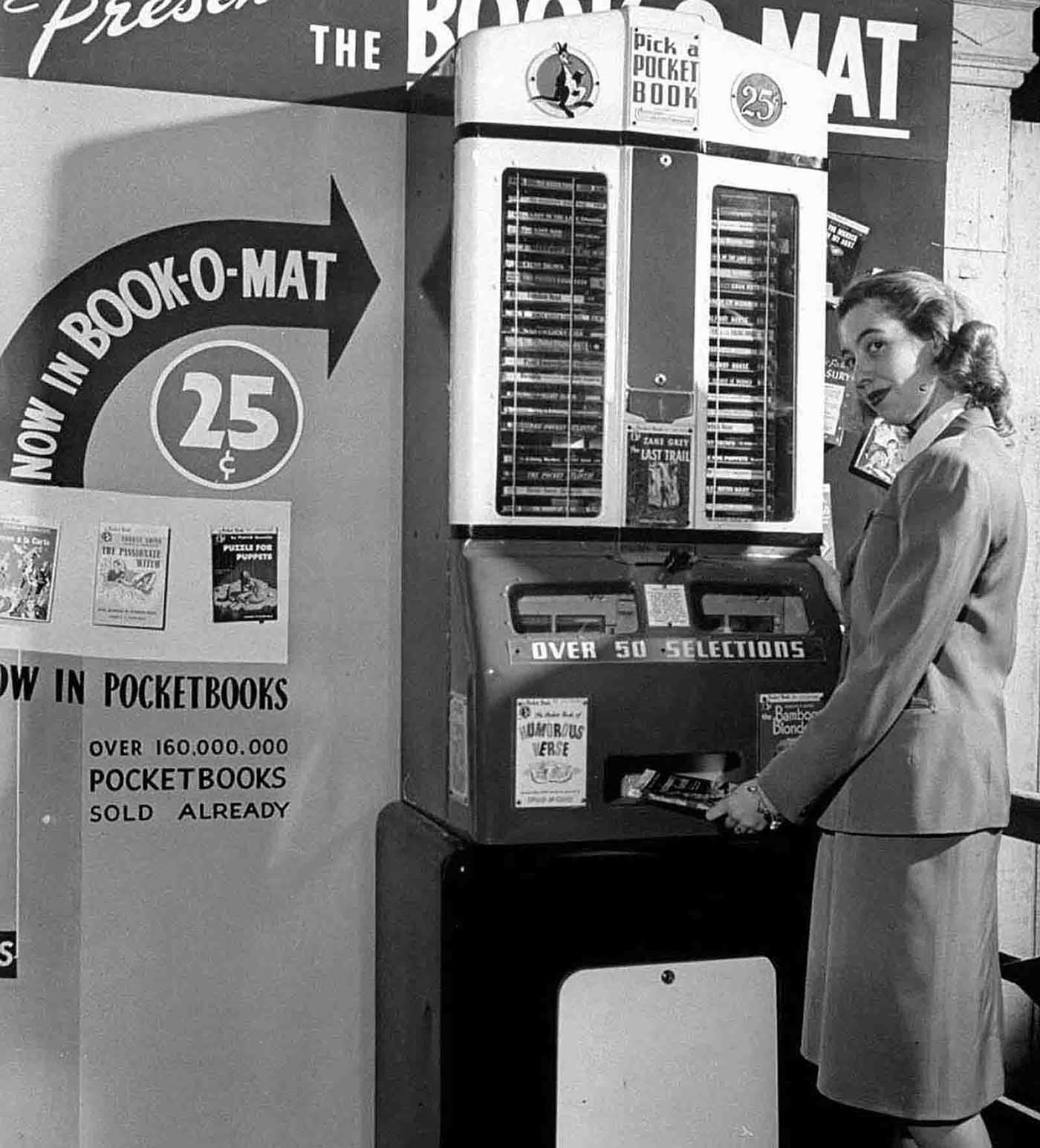
Book-o-mat.
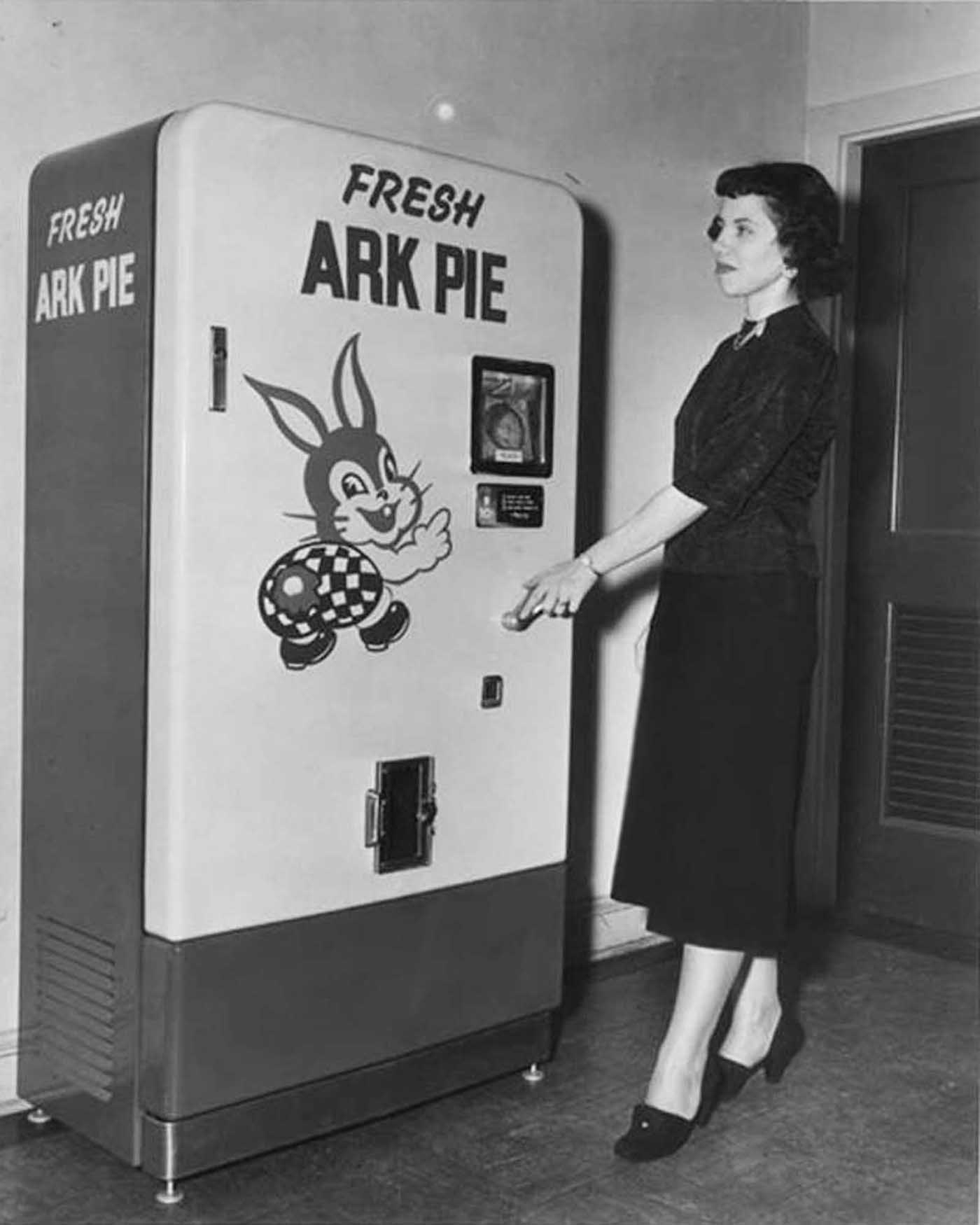
Fresh Ark Pie.
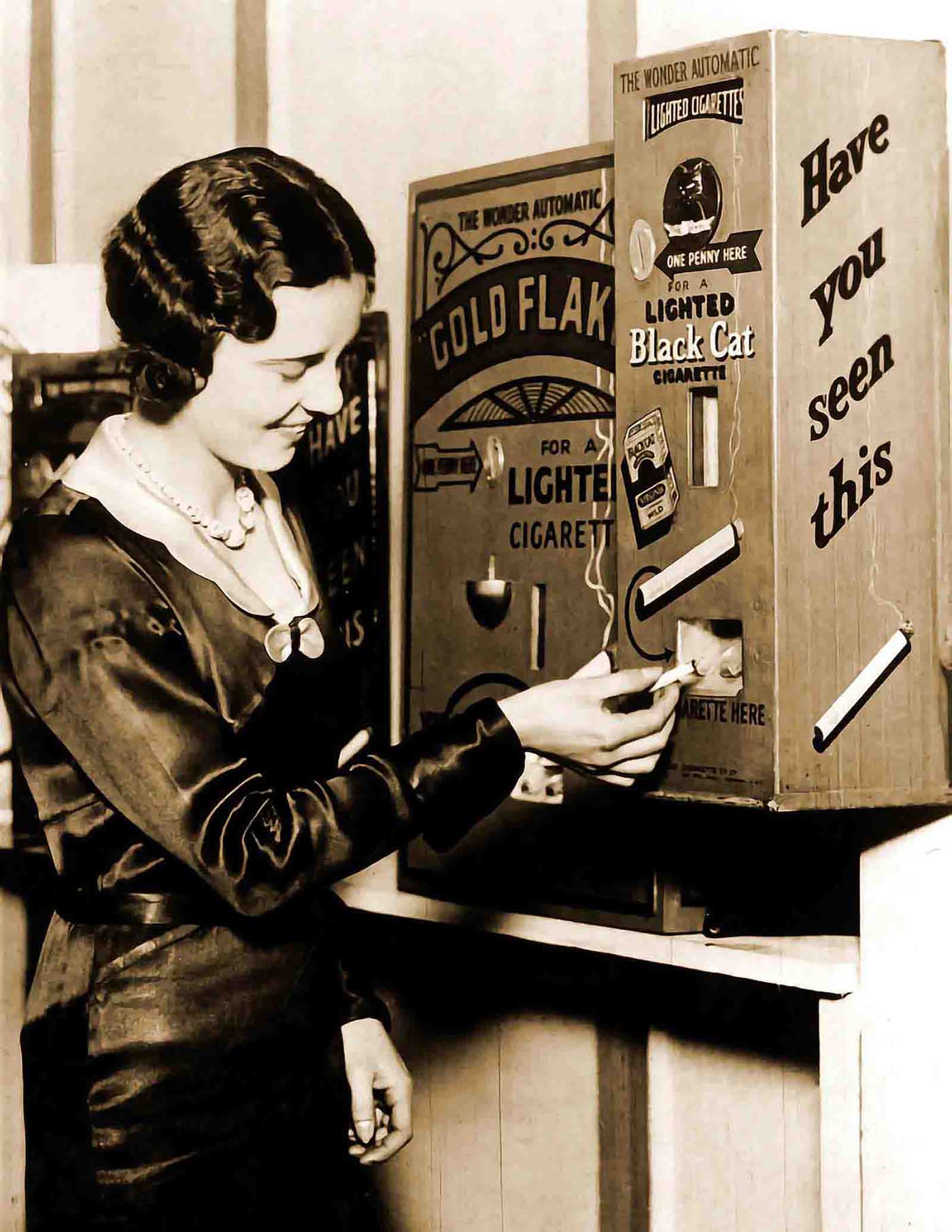
This machine actually sold lit cigarettes for a penny.
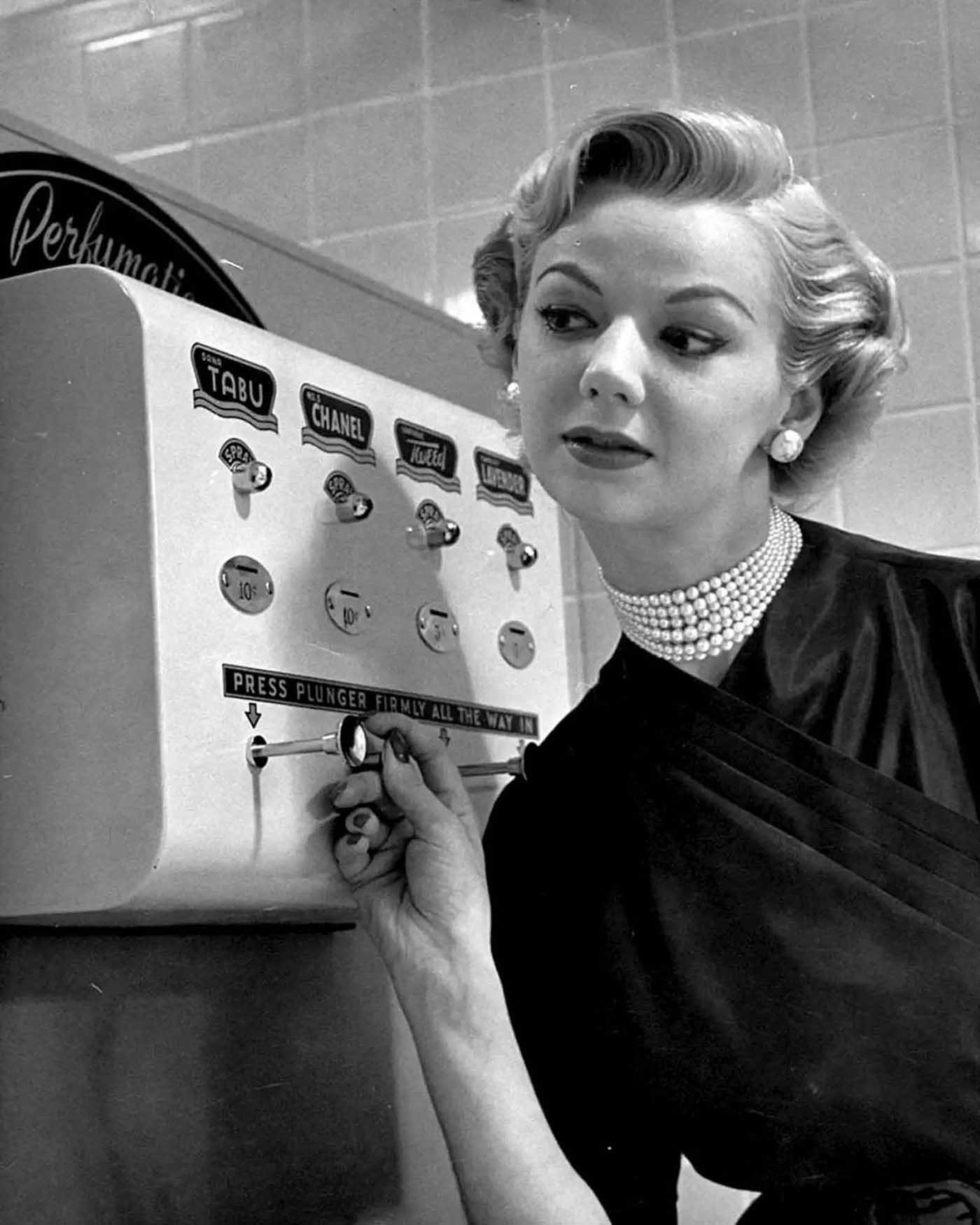
A coin operated perfume dispenser.
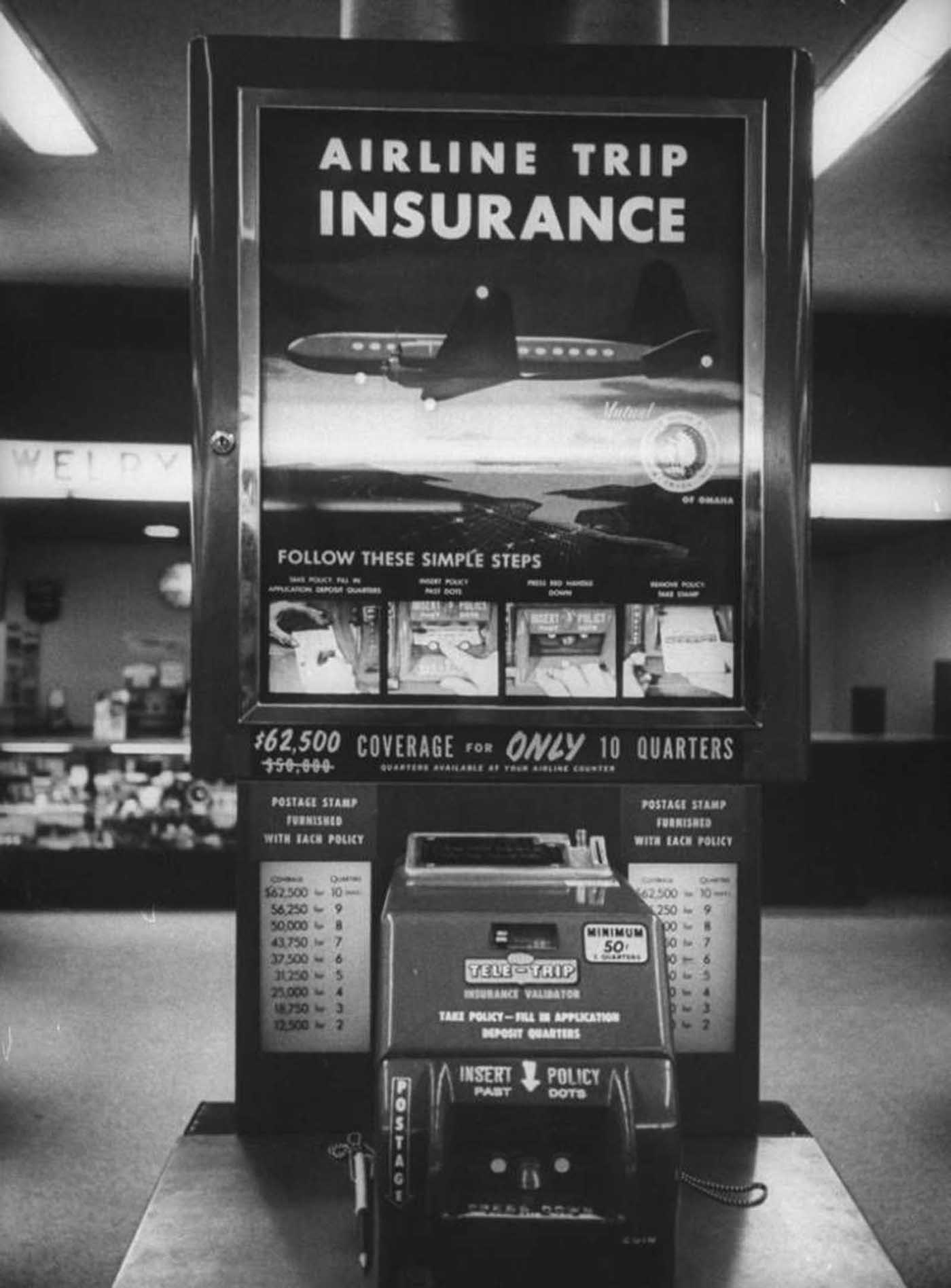
A vending machine for airline trip insurance.
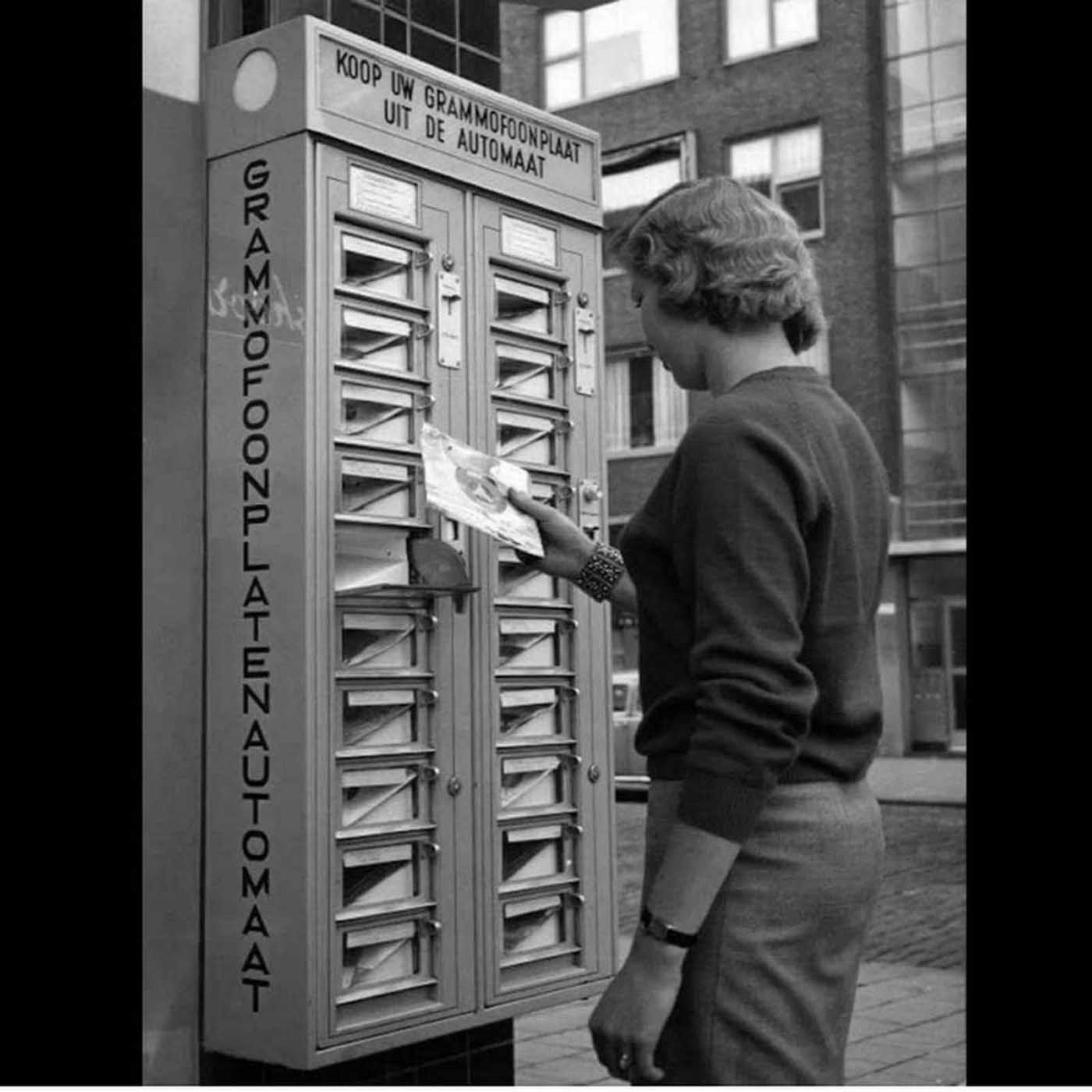
A music record vending machine.
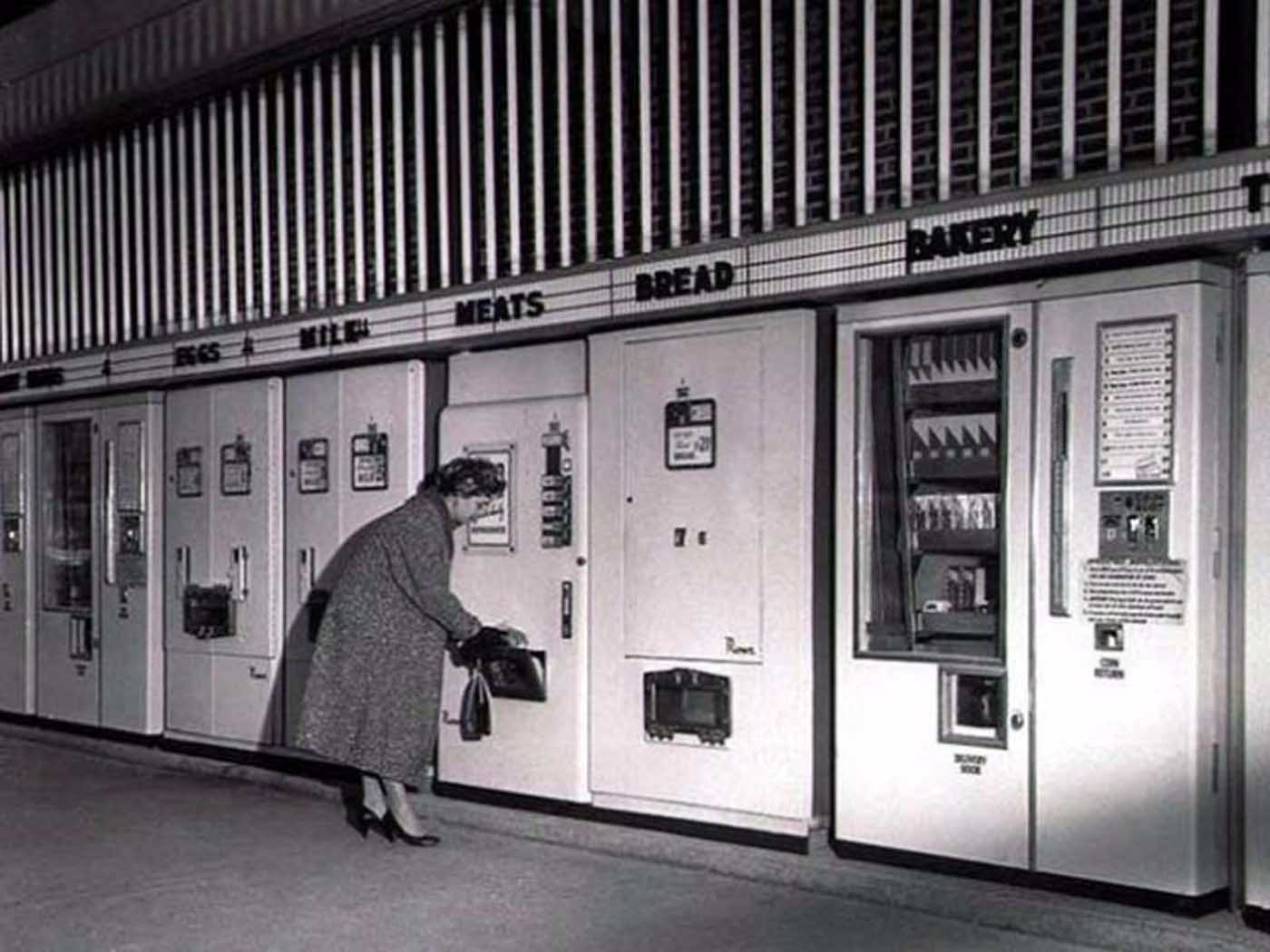
A whole supermarket as a vending machine.
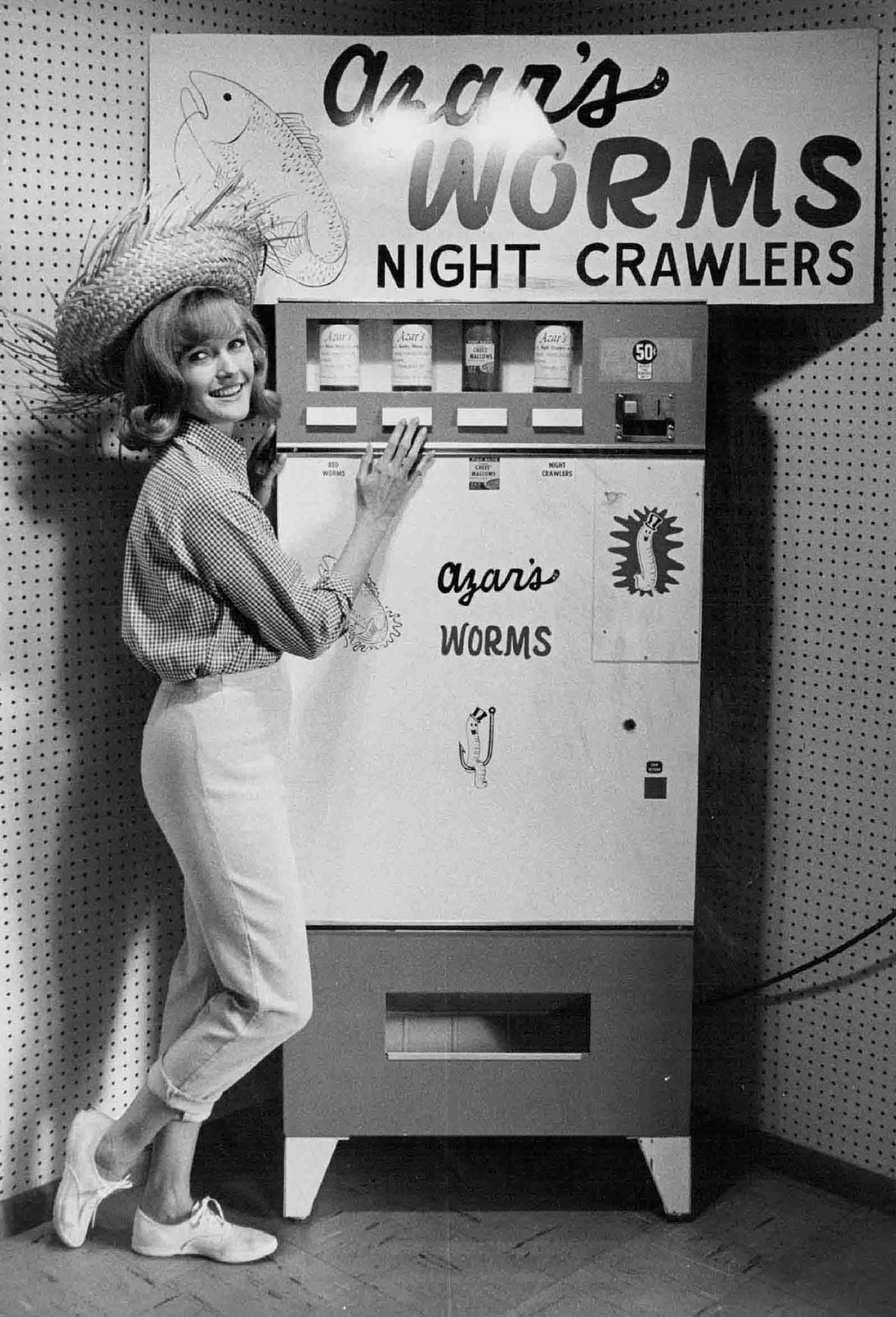
Amazing worms for the fishermen on the go.
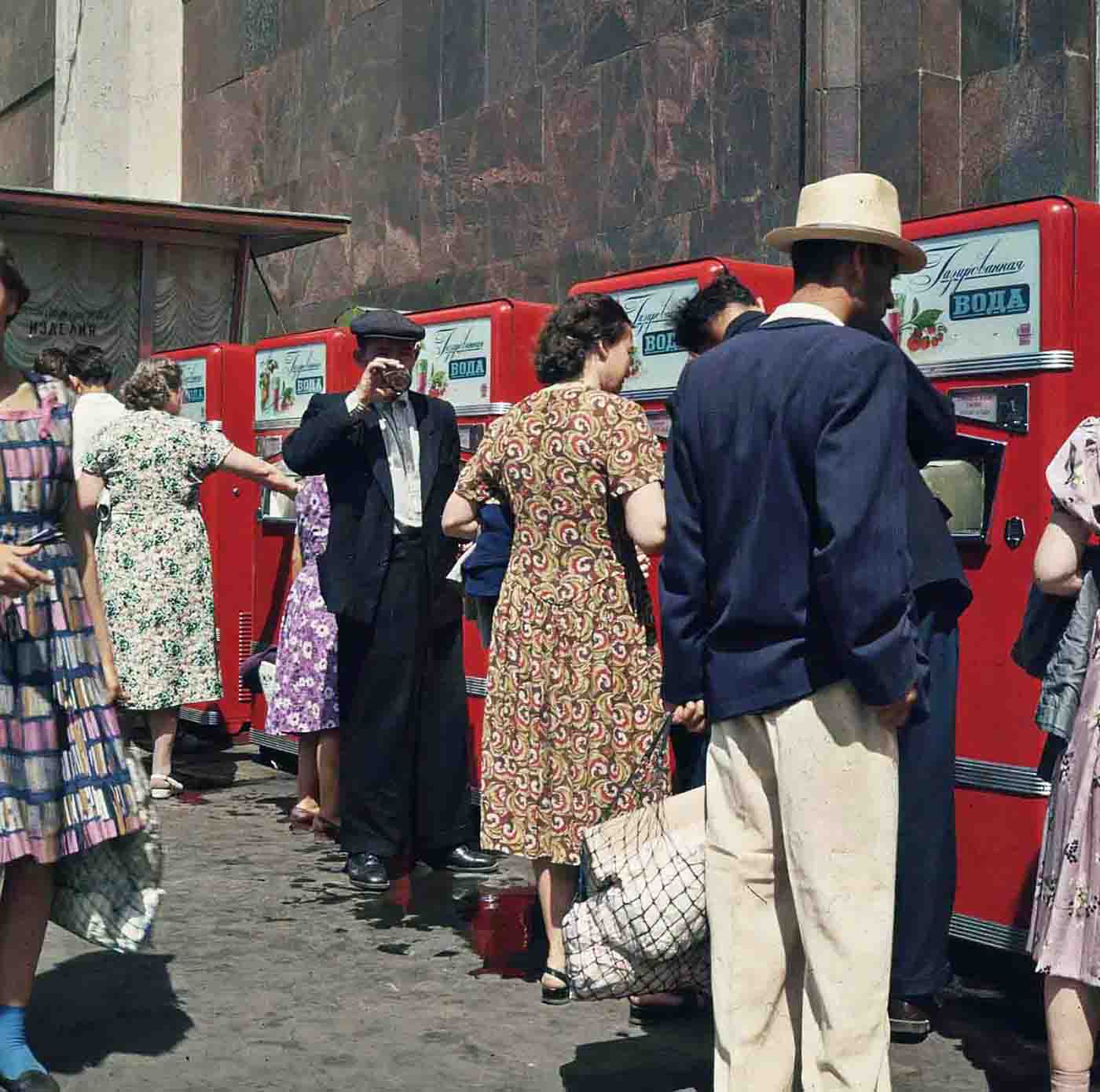
Lemonade vending machines in Moscow.
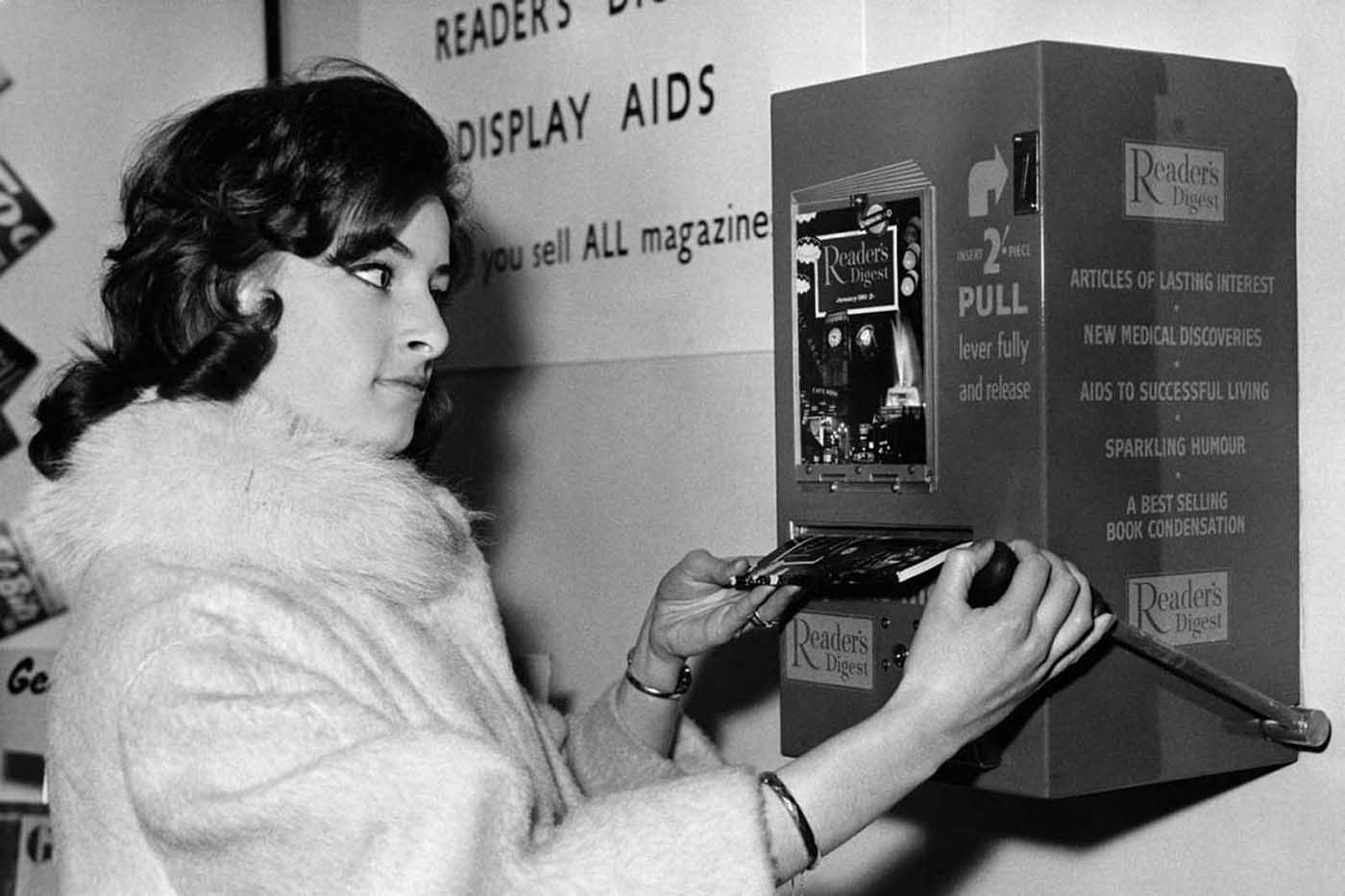
Reader’s Digest vending machine.
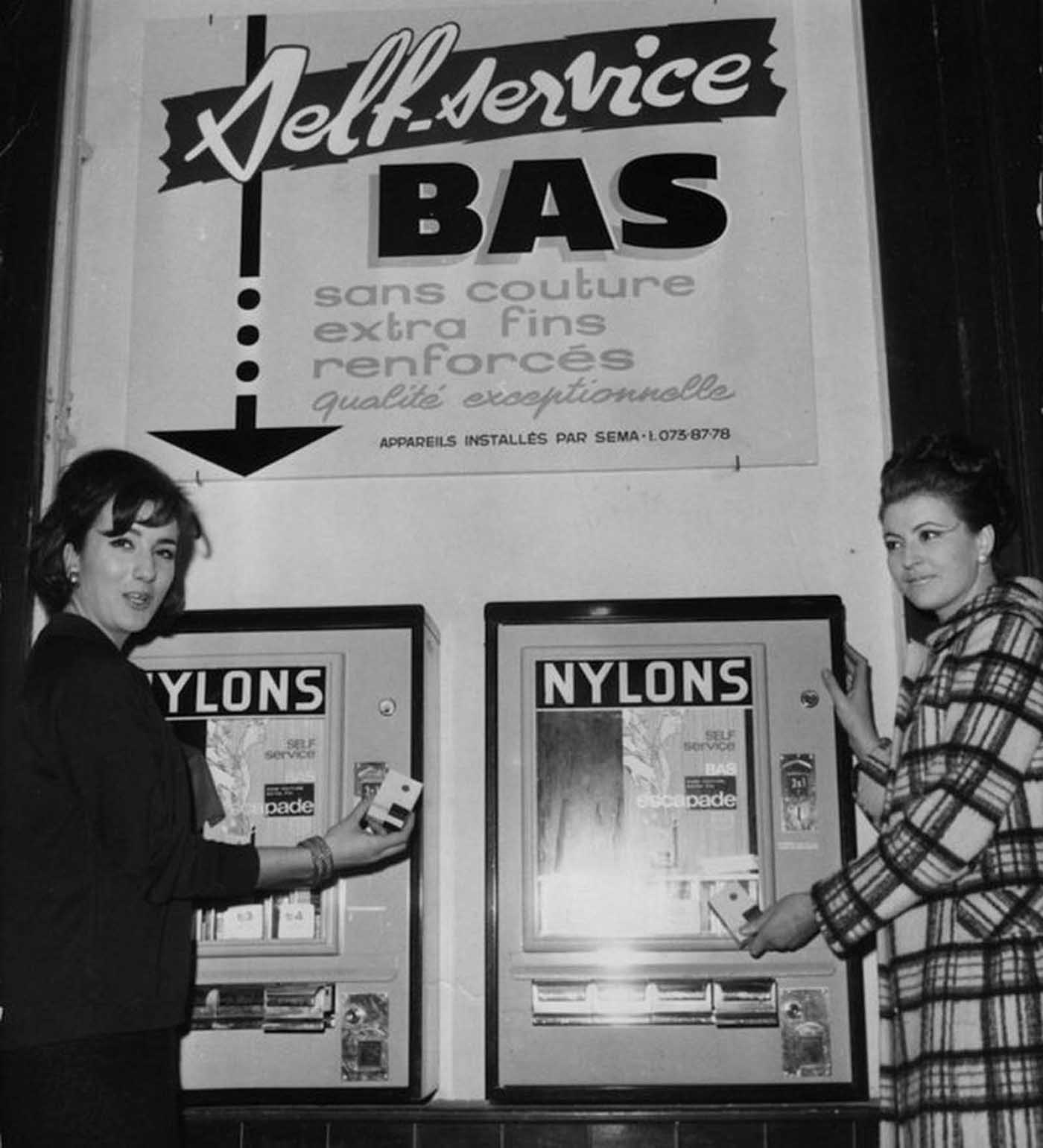
Pantyhose on-the-go in France.
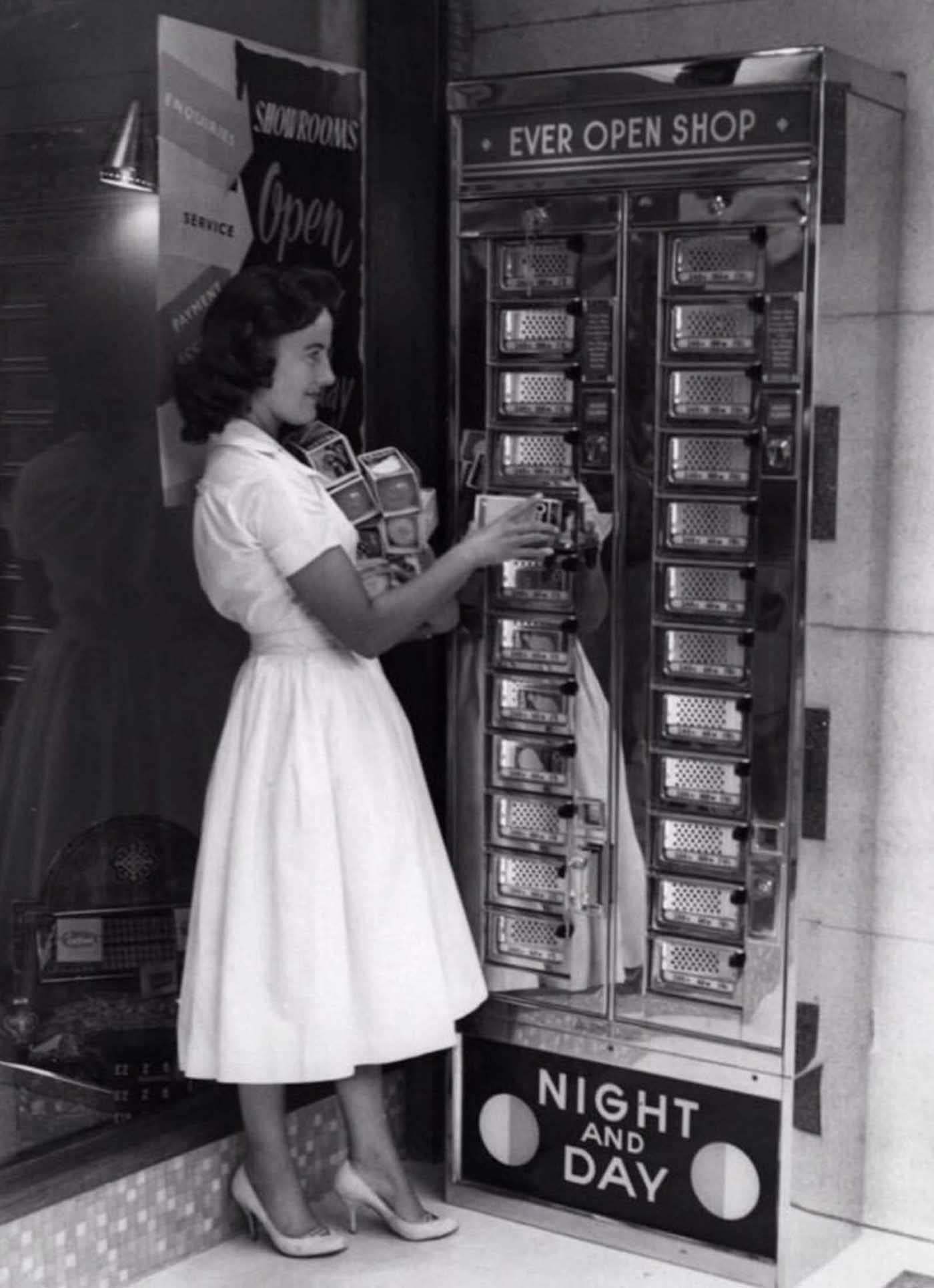
A machine dispensing lightbulbs.
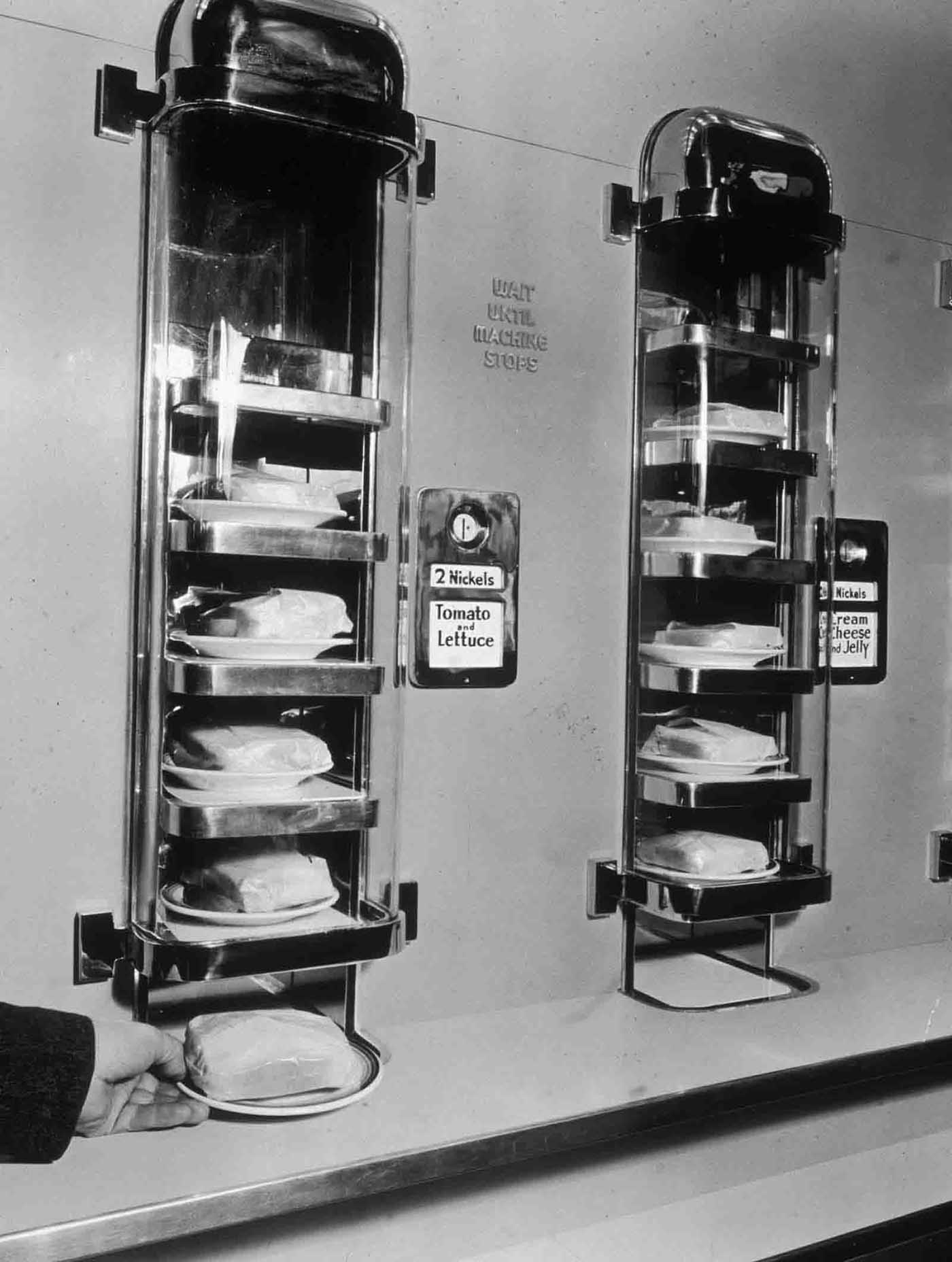
A sandwich vending machine. 1940s.
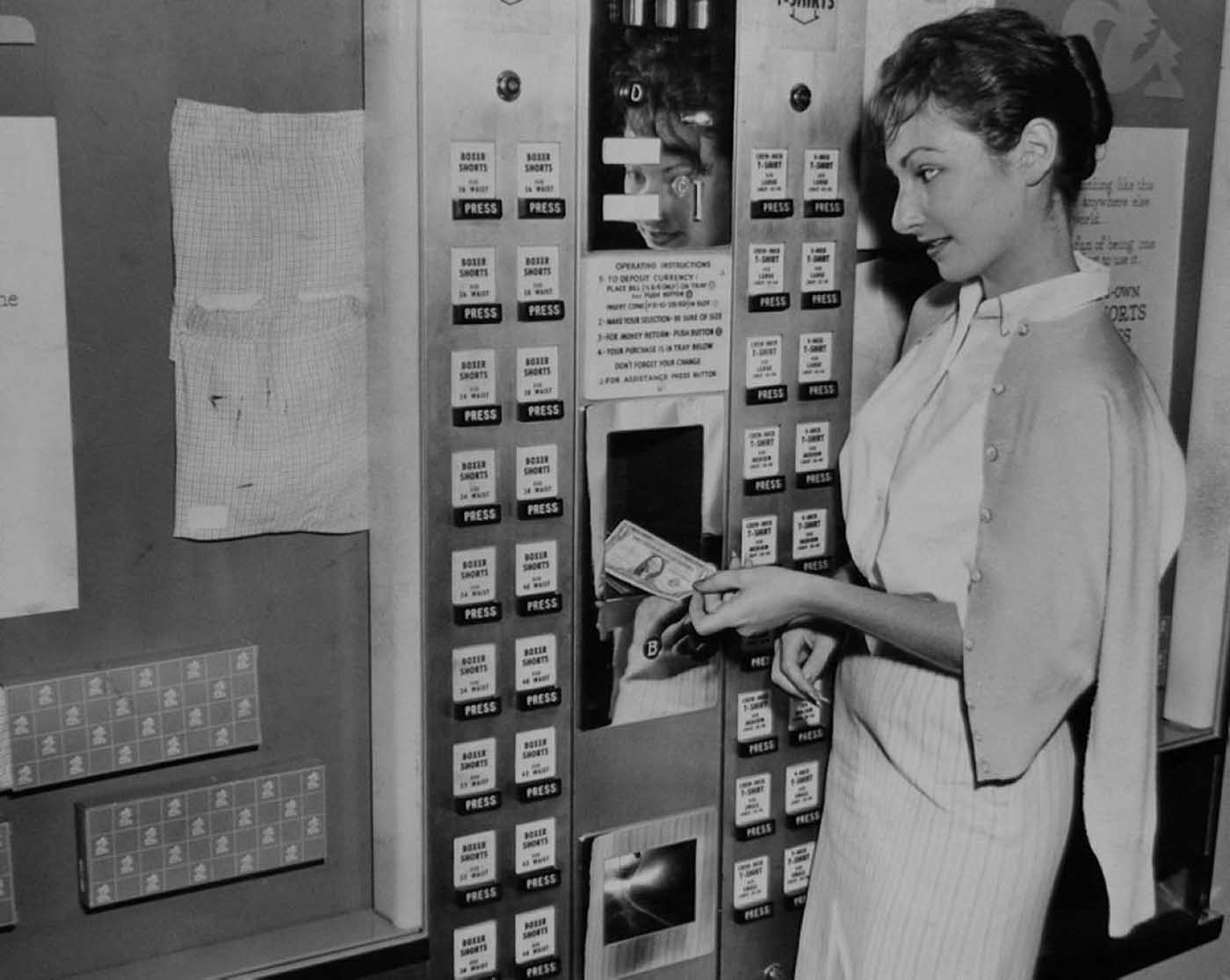
A Macy’s vending machine that sold men’s shorts for only 97 cents.
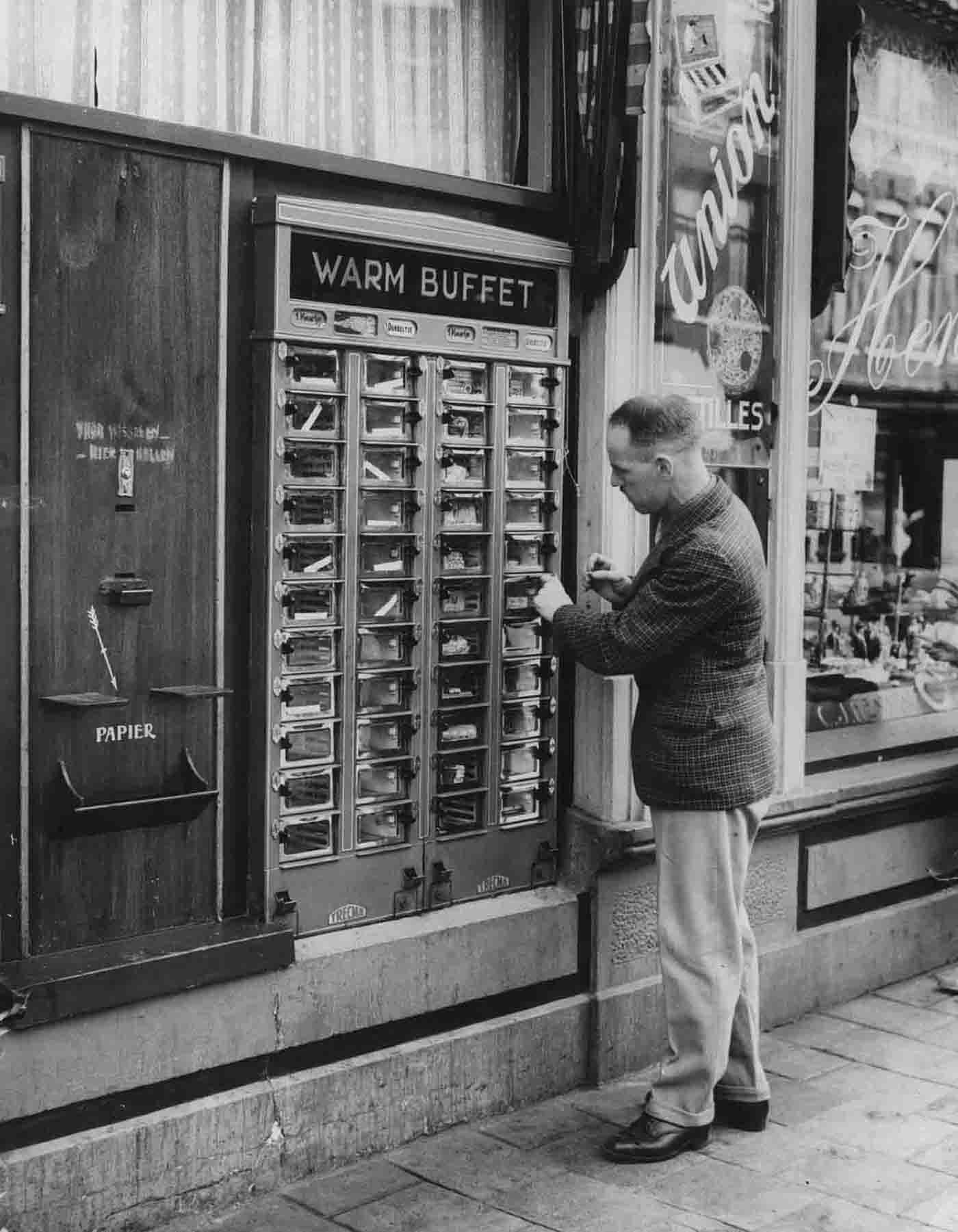
Warm lunch vending machine at Zandvoort in the Netherlands.
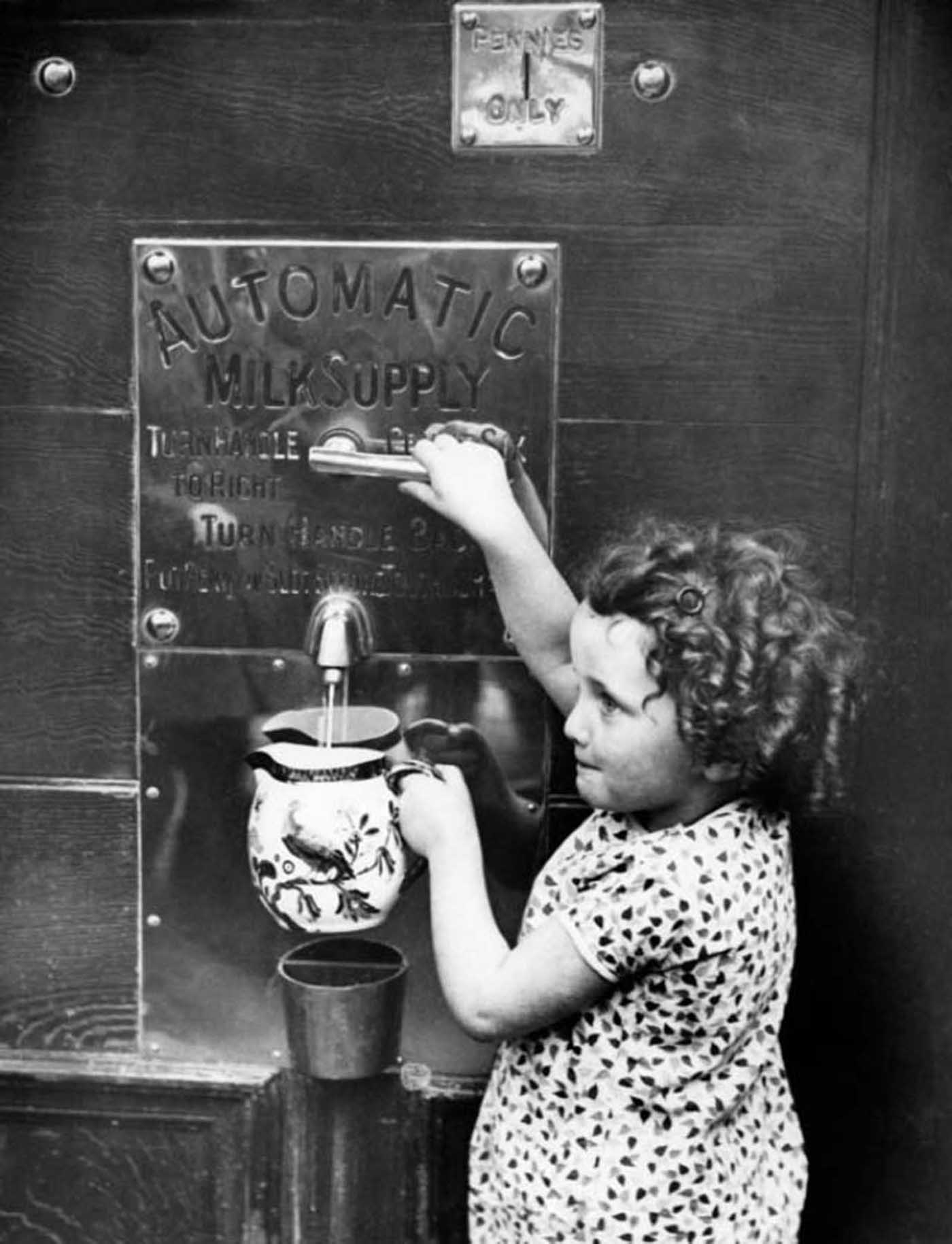
Milk vending machine in London.
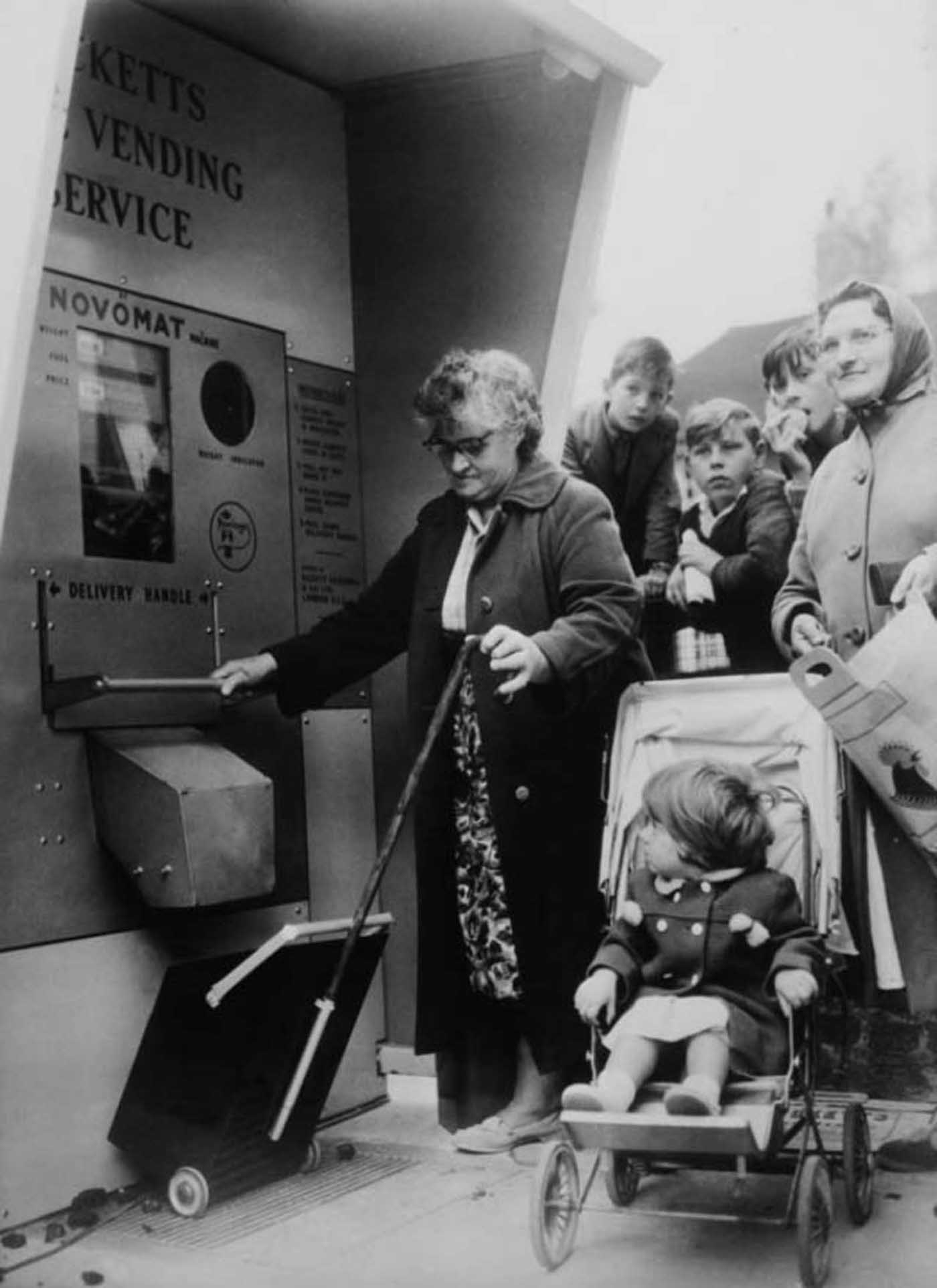
Coal machine distributor in England.

A fruit vending machine in London Tube. 1920s.
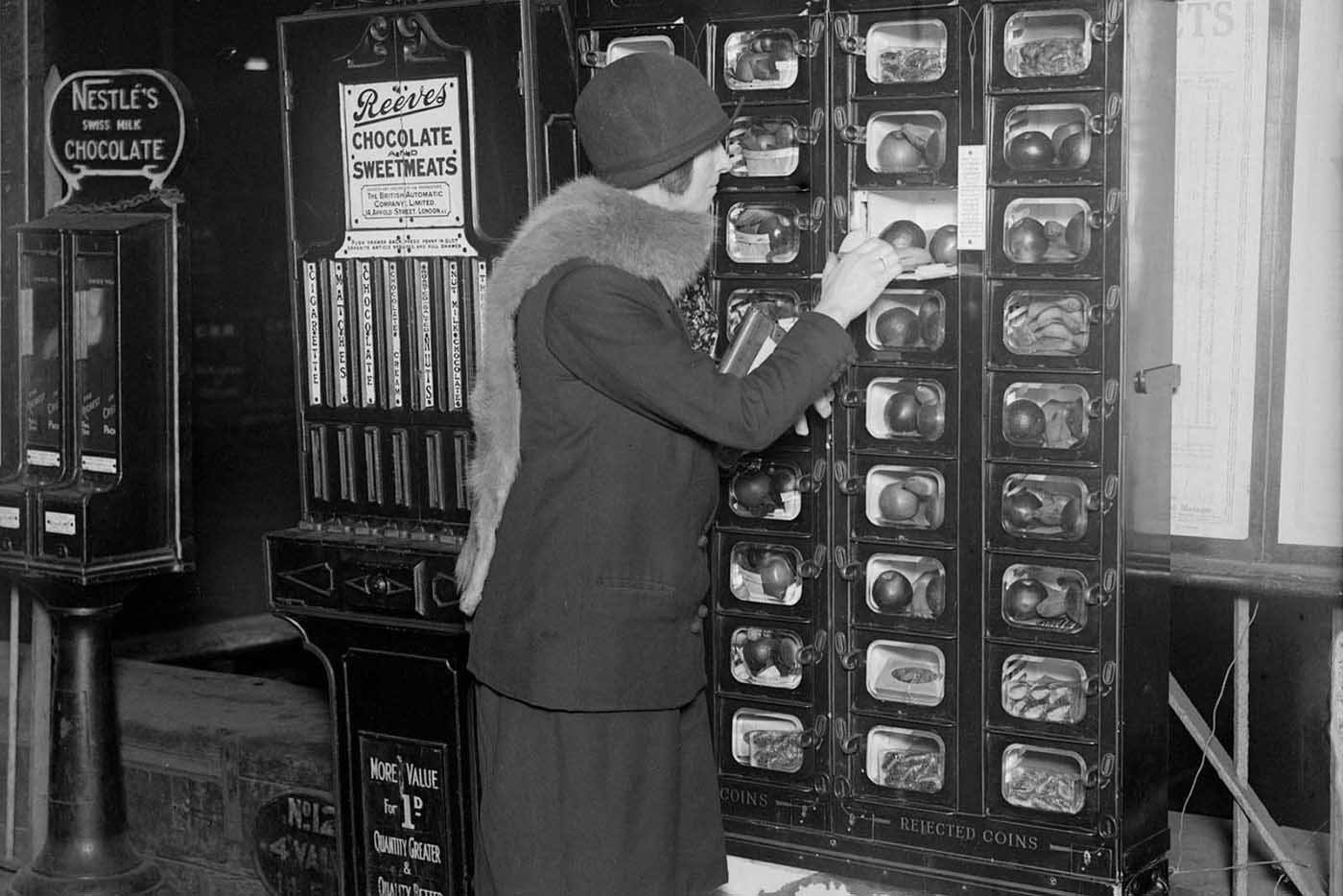
A woman buys fruit from a coin operated machine at Paddington Station in London. 1920s.
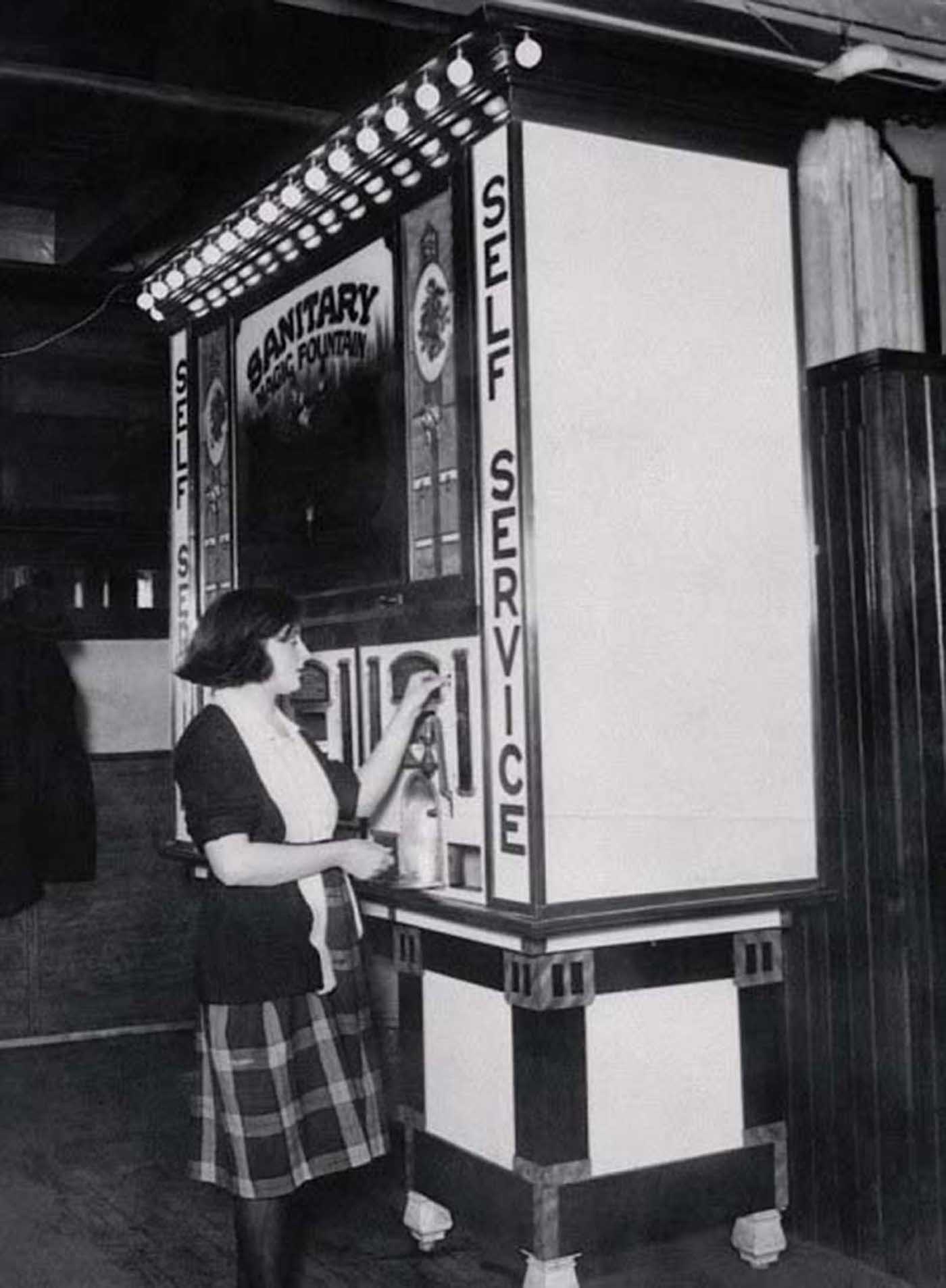
The Maiwarm Company, of Chicago, perfected the market a soda vending machine which works automatically and required no soda squirter.

A man uses the cafeteria vending machine called ‘Automat’. 1940s.
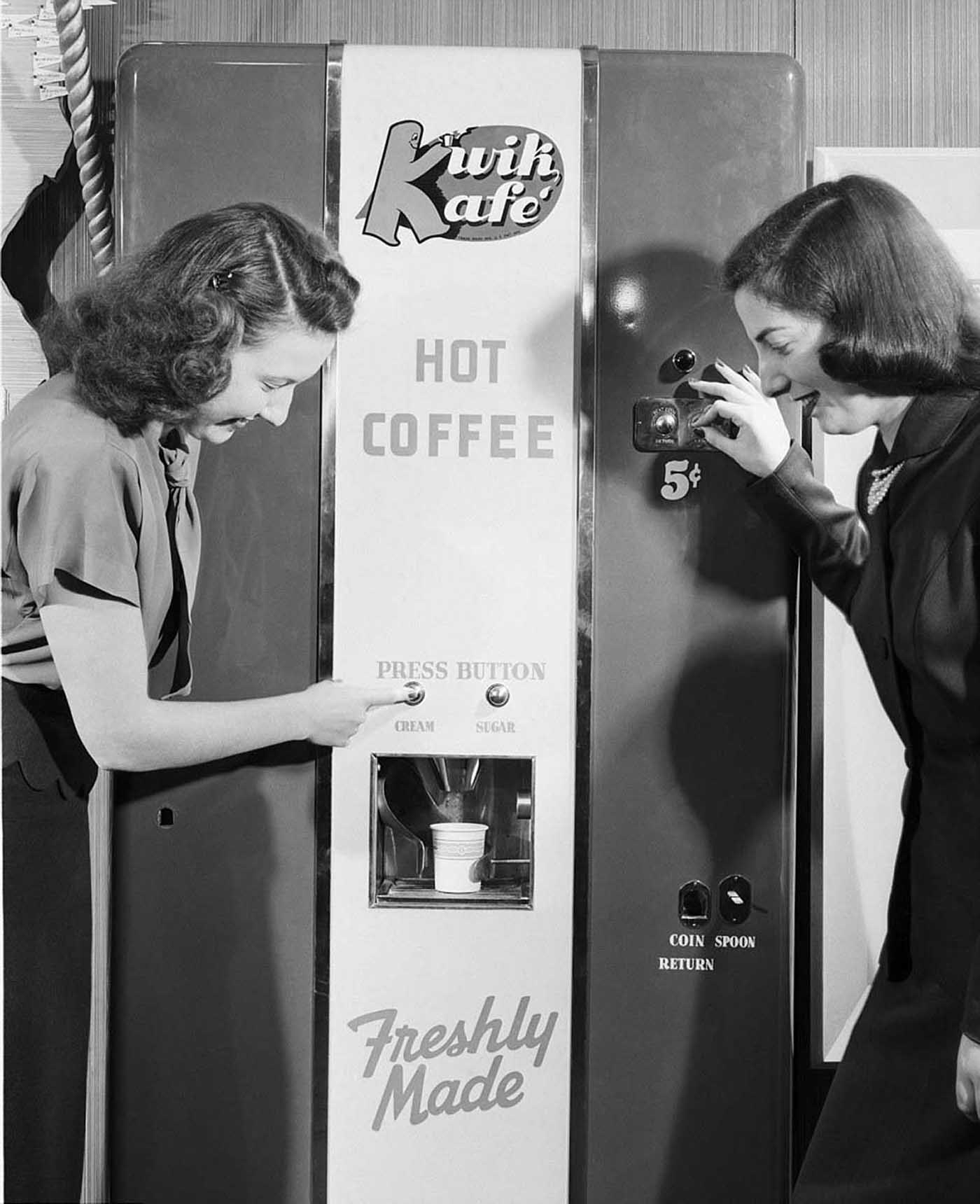
A coffee machine from 1947.
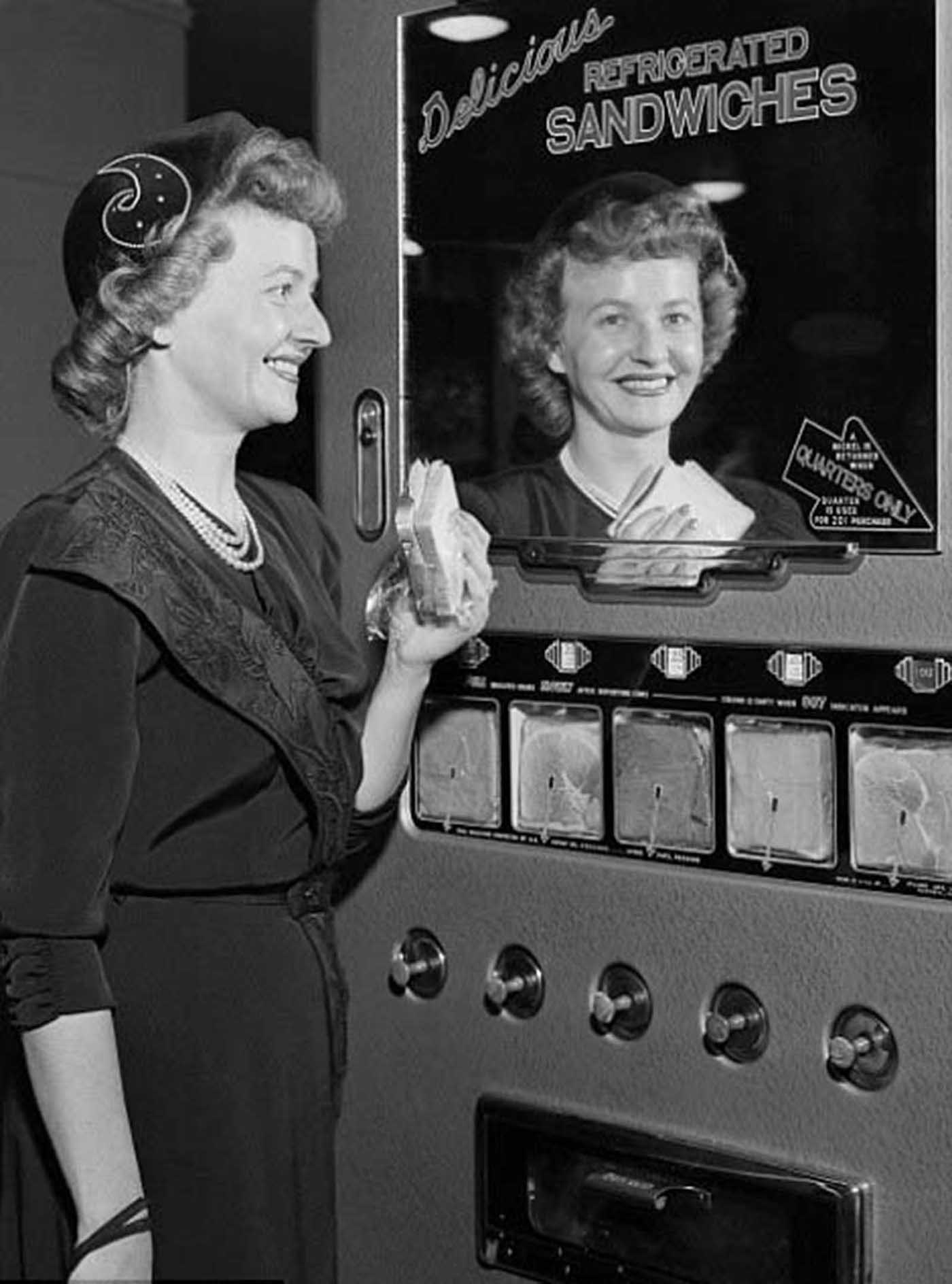
This sandwich dispenser was shown for the first time at the Chicago Exhibit. 1950s.
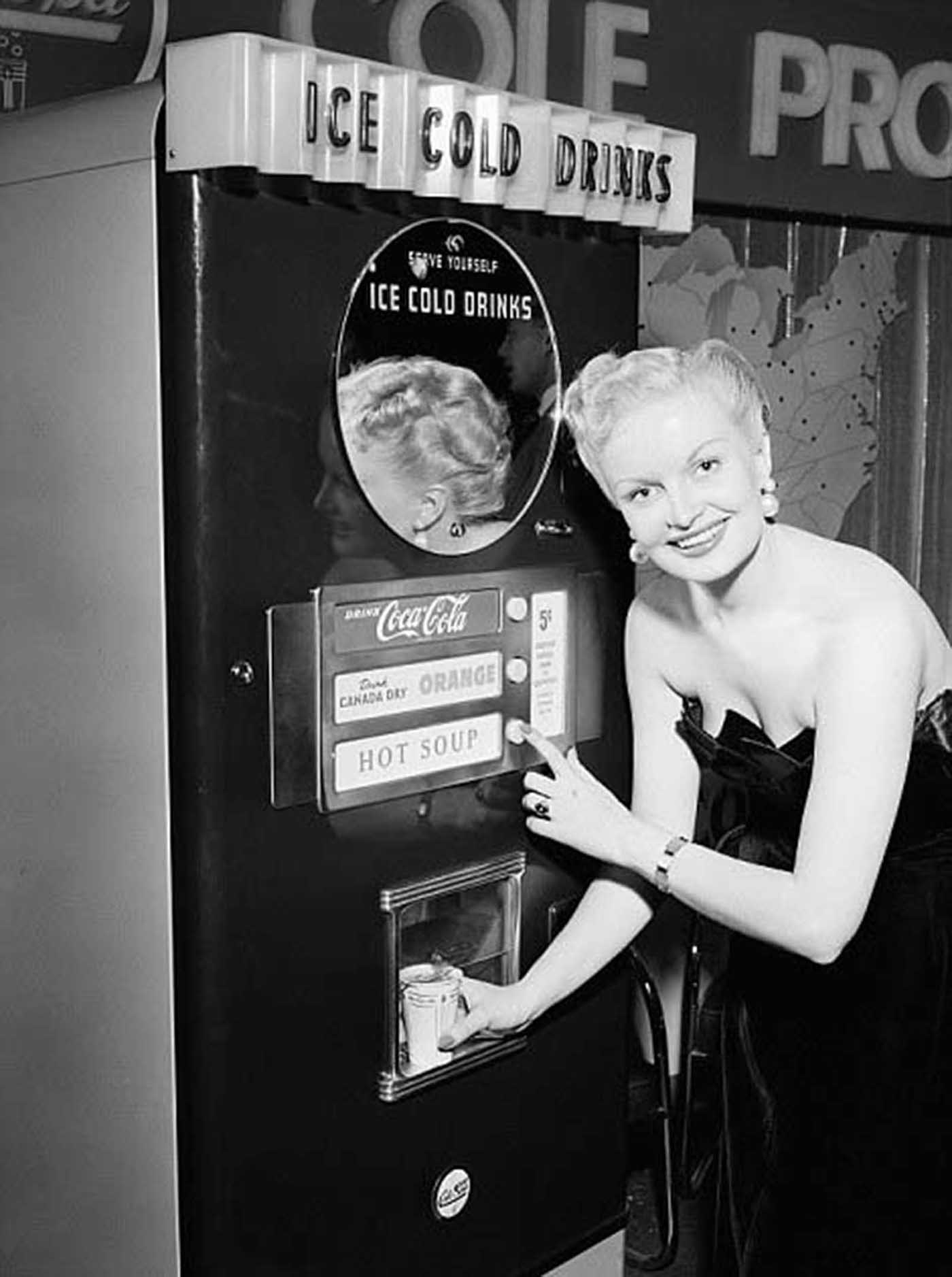
A woman demonstrates a multi functional vending machine that dispenses both cold drinks including Coca Cola, Canada Dry and orange juice along with hot soup.

Three women enjoy soup from a Campbell’s Soup vending machine in their office. 1950s.
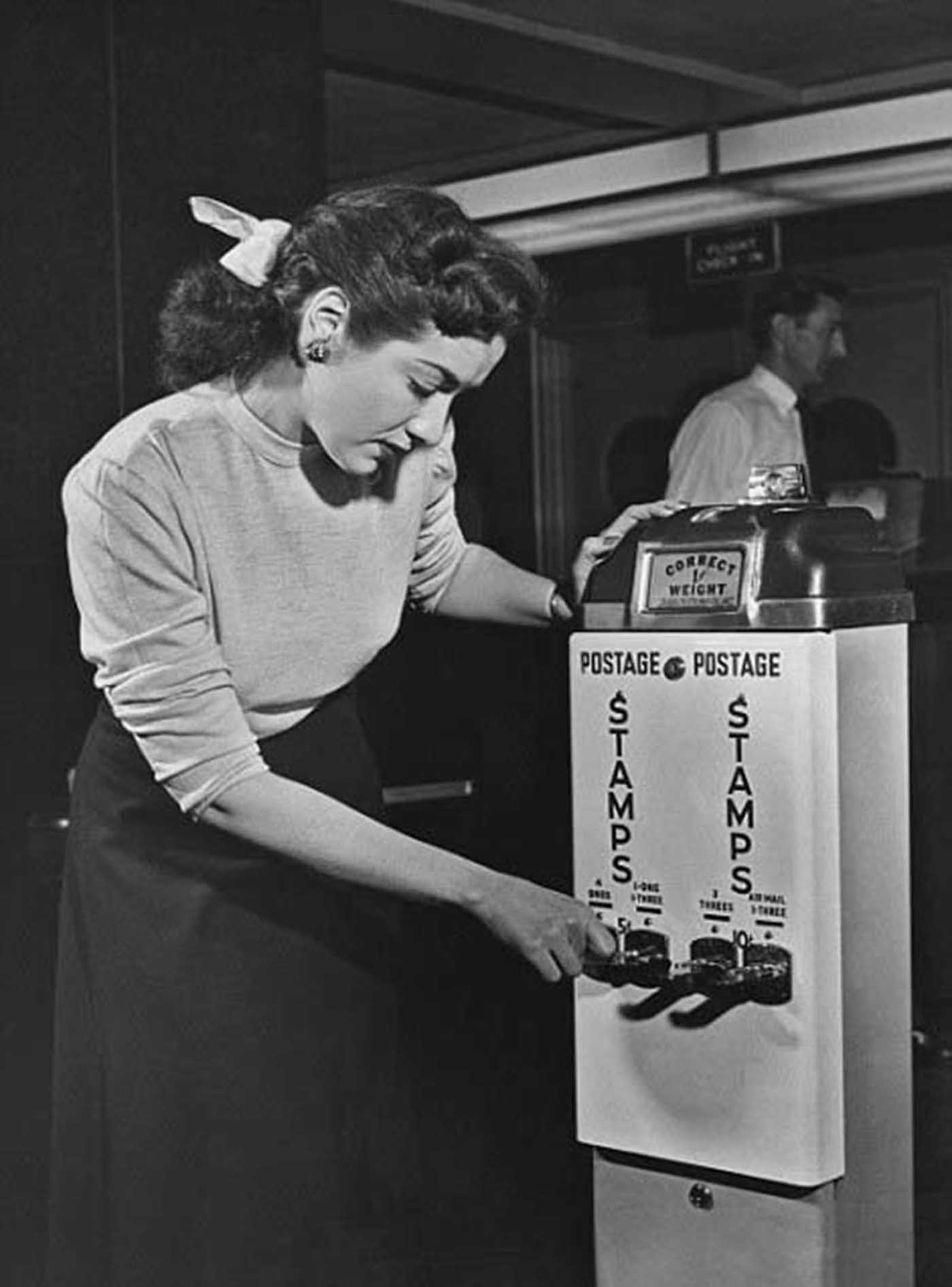
A vending machine that allowed customers to buy stamps without having to queue.
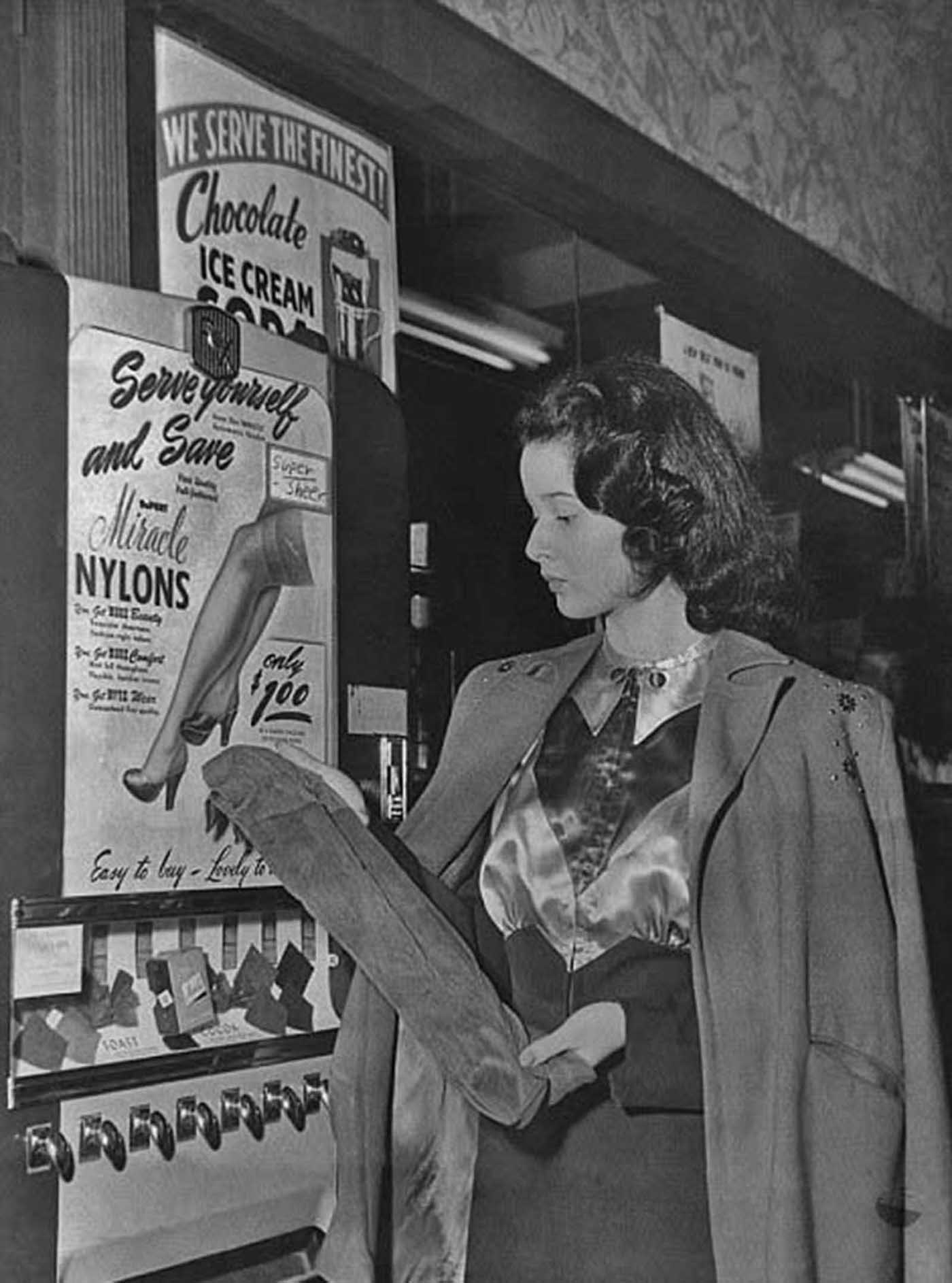
A woman purchases a pair of nylon stockings from a machine.
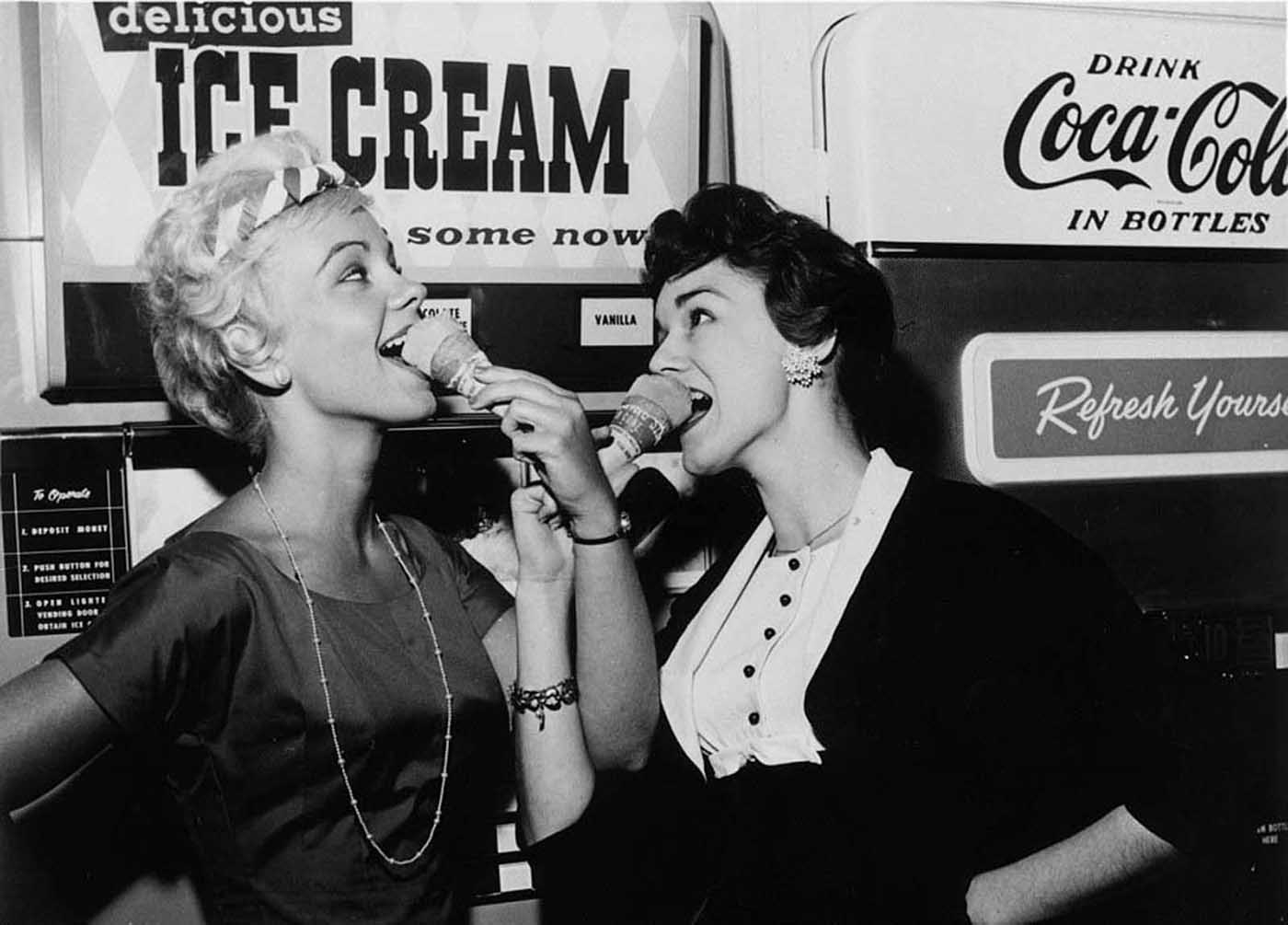
Vending machines were already able to refrigerate and heat liquids but the ice cream vending machine ensured items were kept frozen. 1952.

This couple have a choice of sandwiches, hot soup or hot chocolate, coffee, cold drinks, fresh milk and chilled fruit from a series of automated vendors. 1959.
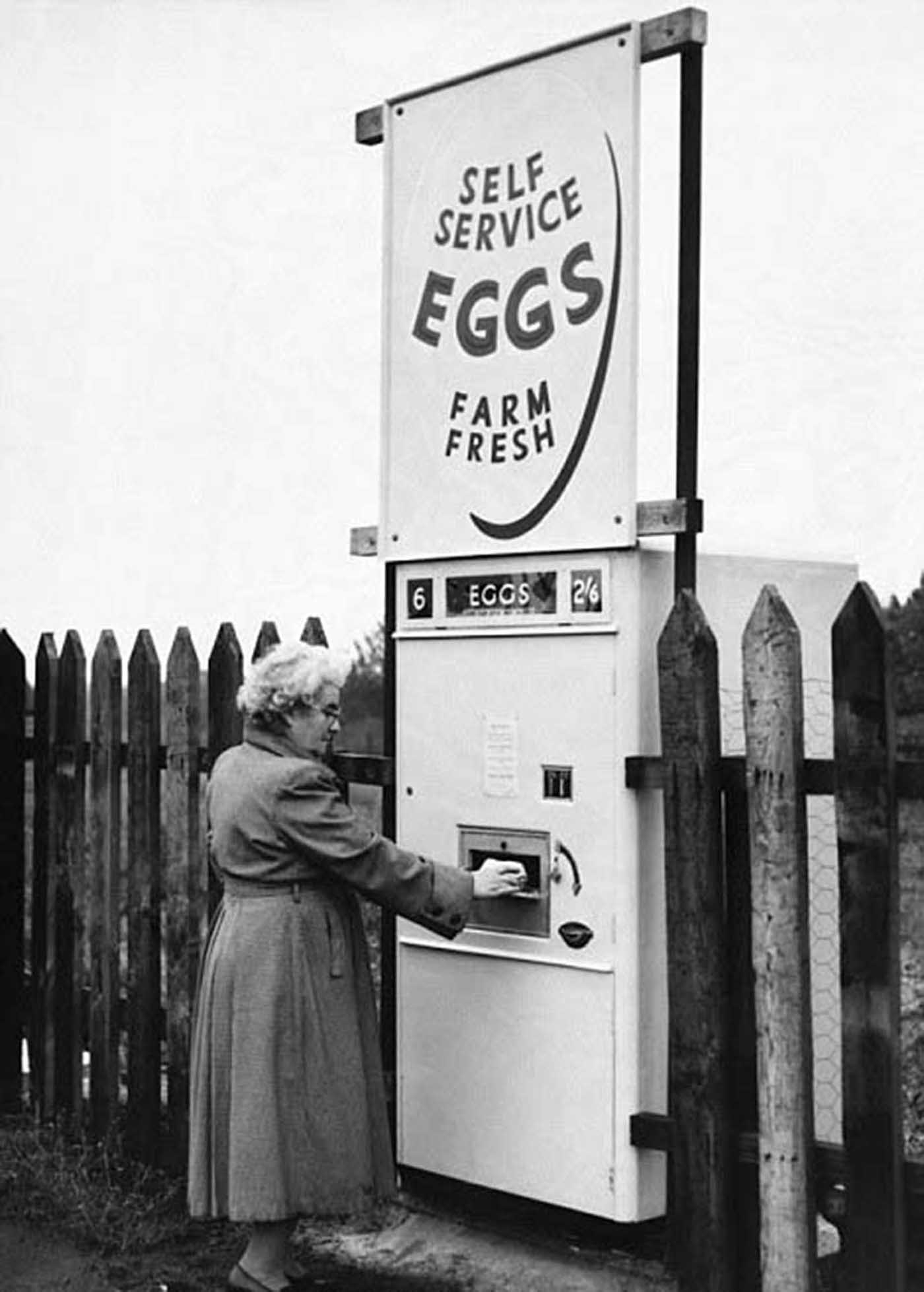
People purchase fresh eggs from local farms from the machines. 1960s.

Buying fresh eggs from the vending machine.
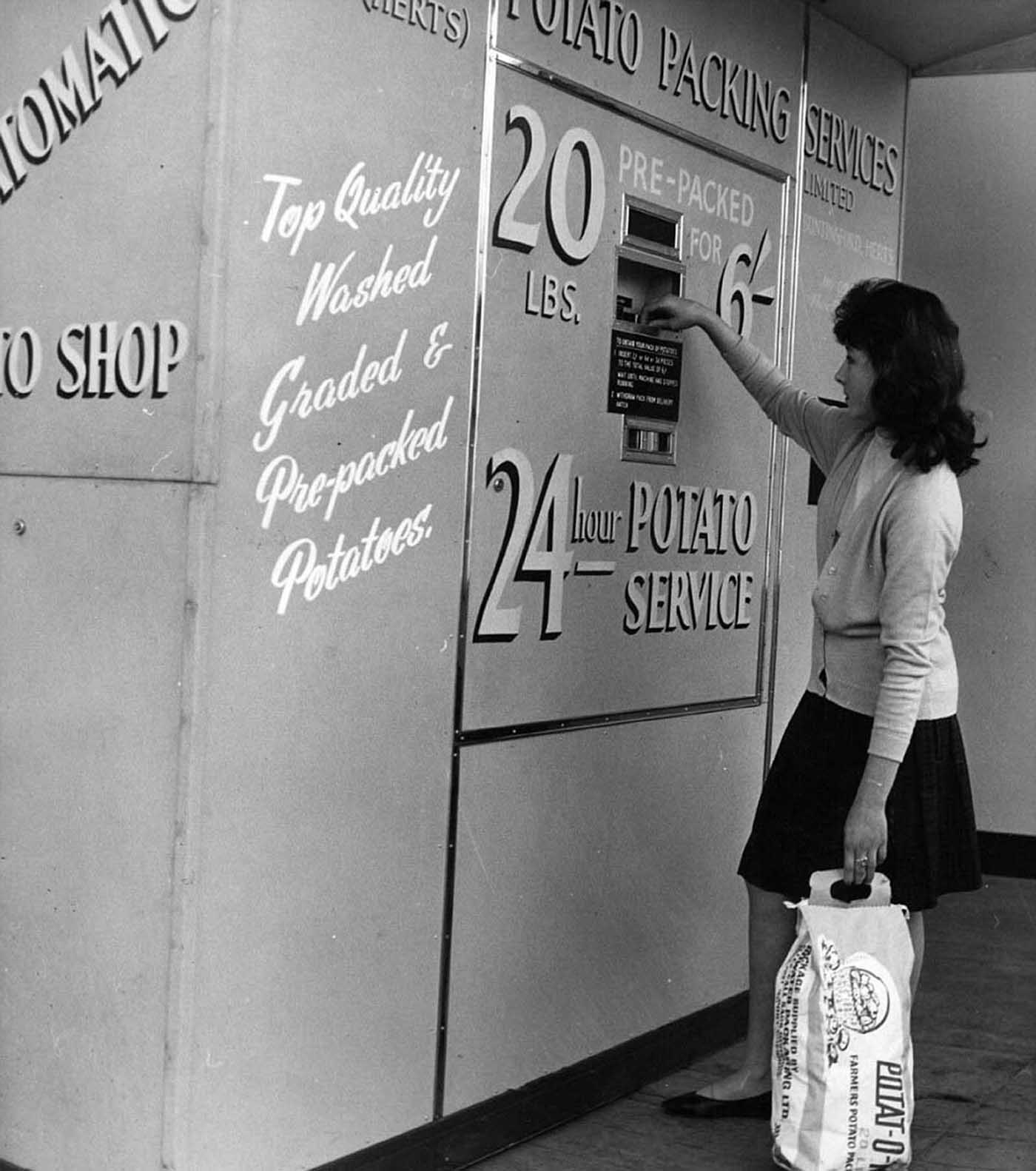
A woman is operating the first potato vending machine in Britain in Chelsea. 1962.

A woman in Berlin, Germany uses a coin-operated device to buy a clock. 1960s.

A woman buying a whisky from the vending machine.
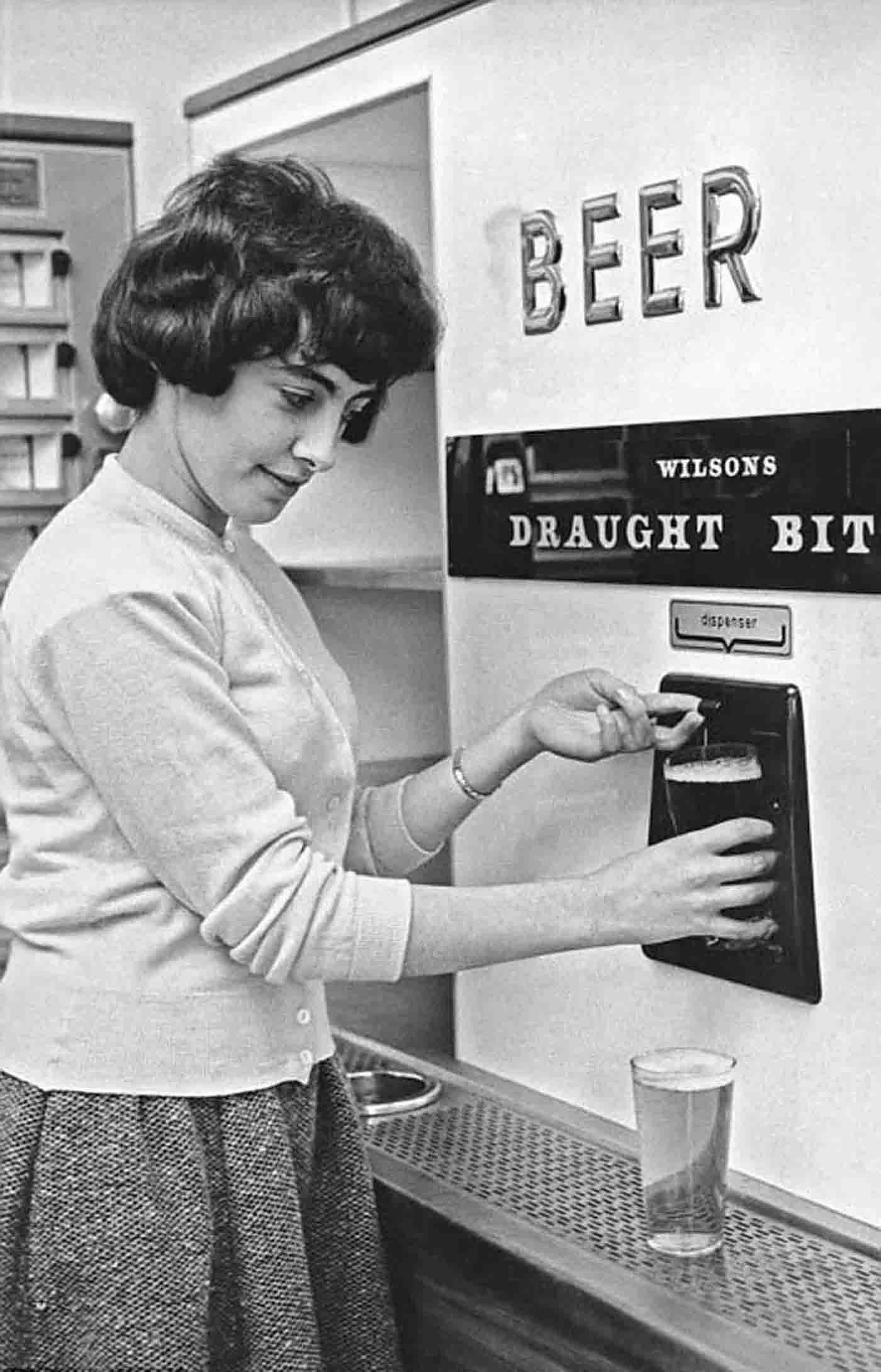
Dispensing a pint of beer. 1960s.

Shoppers could pick up household essentials from this machine. 1960s.
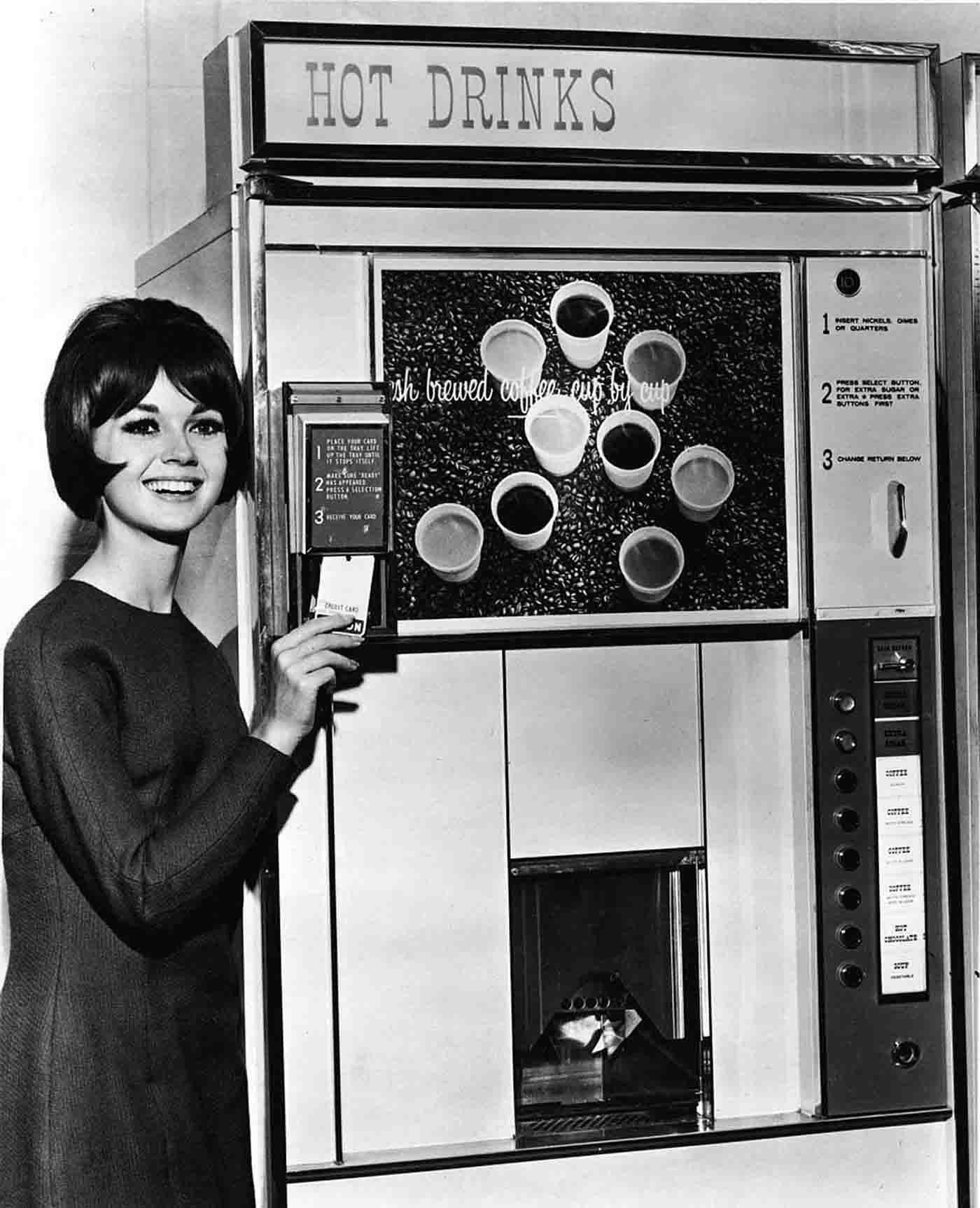
This woman is now able to use a credit card to pay for one of a selection of coffees from this self-serve machine. 1960s.
(Photo credit: Wikimedia Commons / Daily Mail / Getty / National Archives / Library of Congress).
Updated on: February 10, 2022
Any factual error or typo? Let us know.



